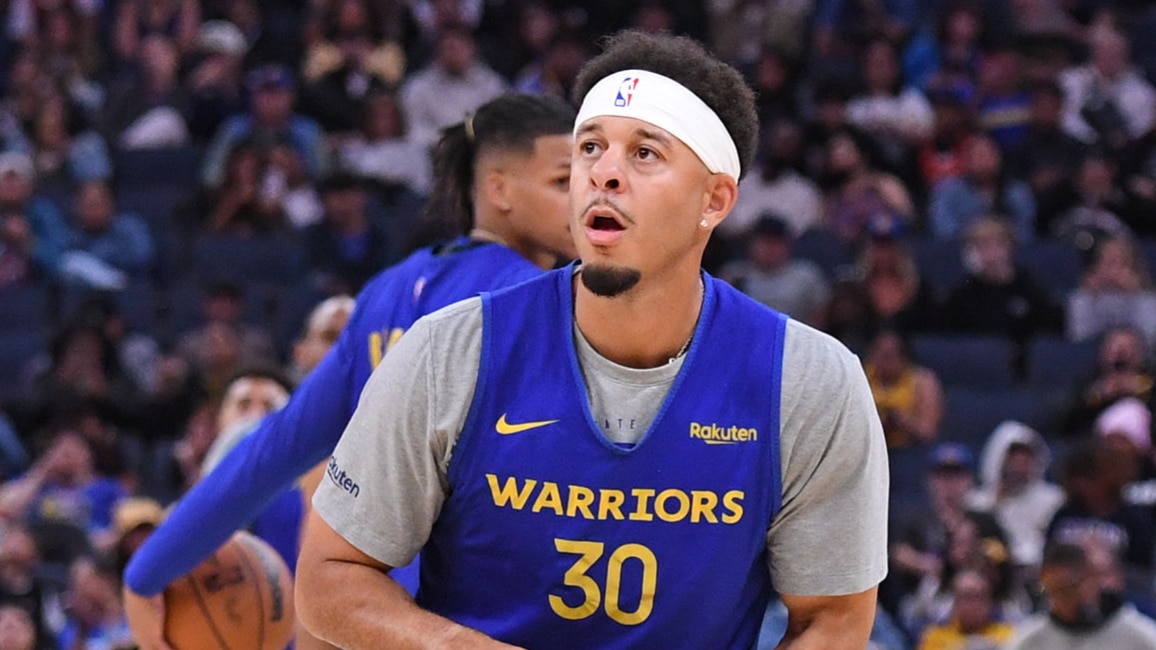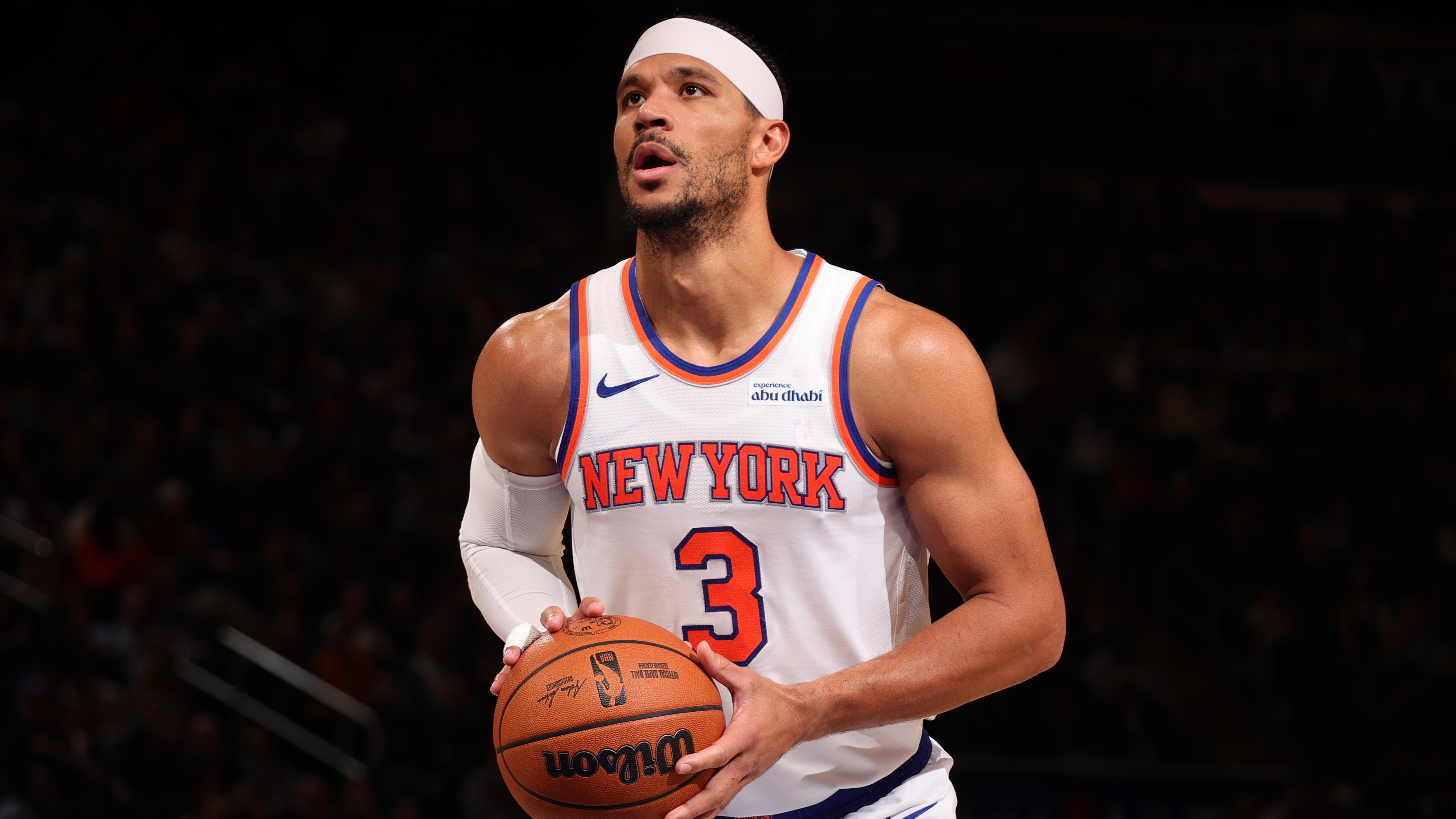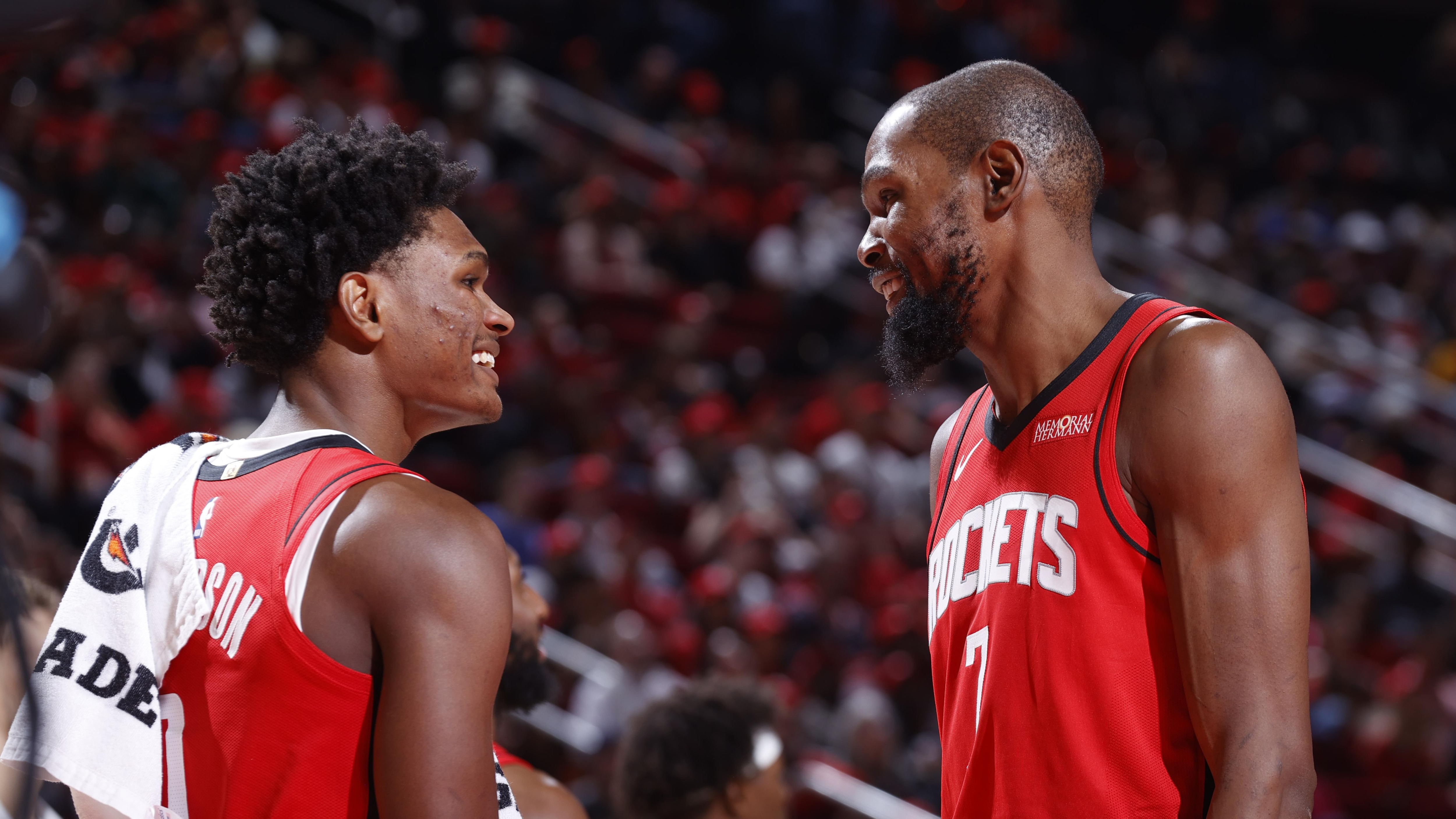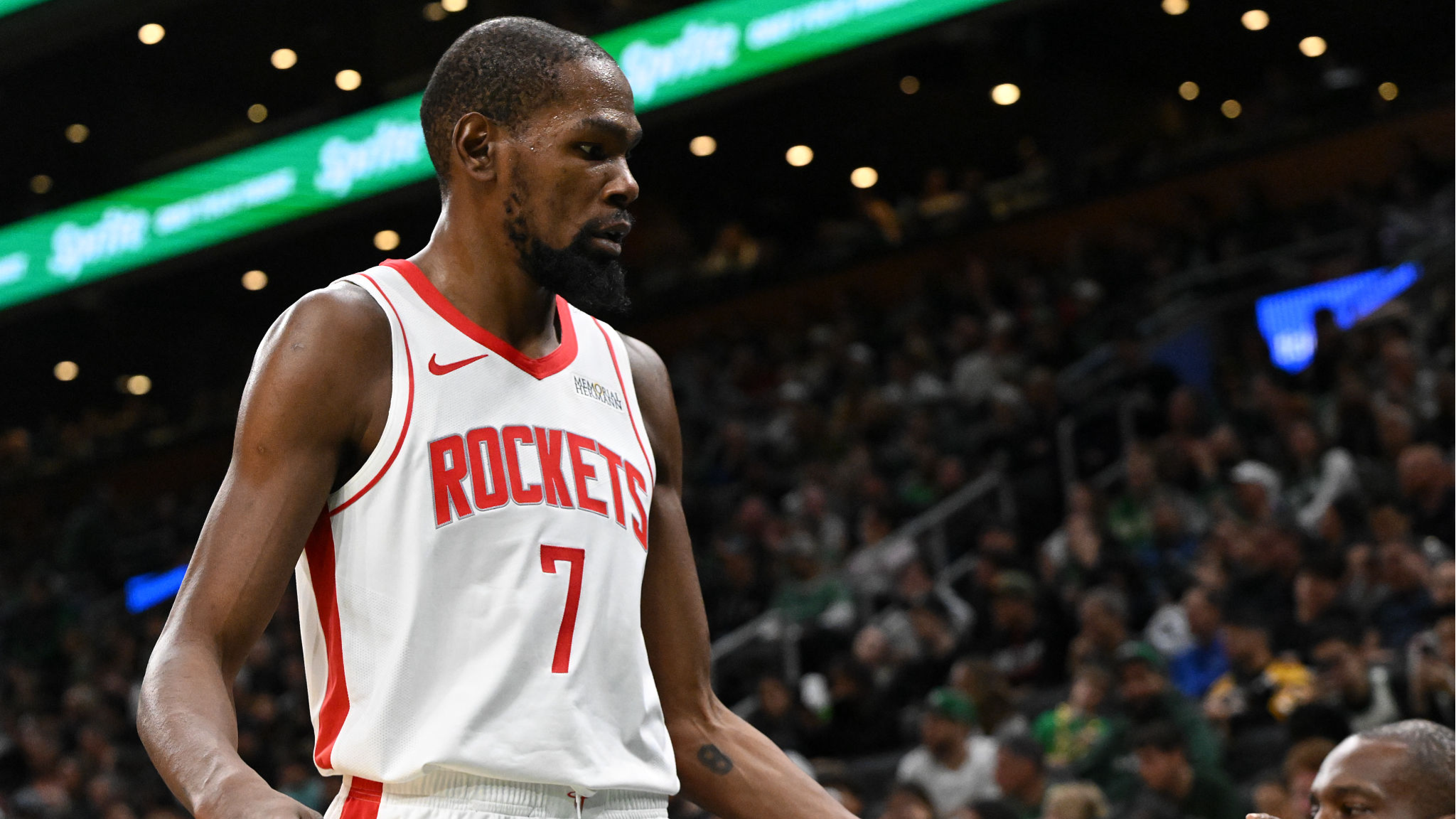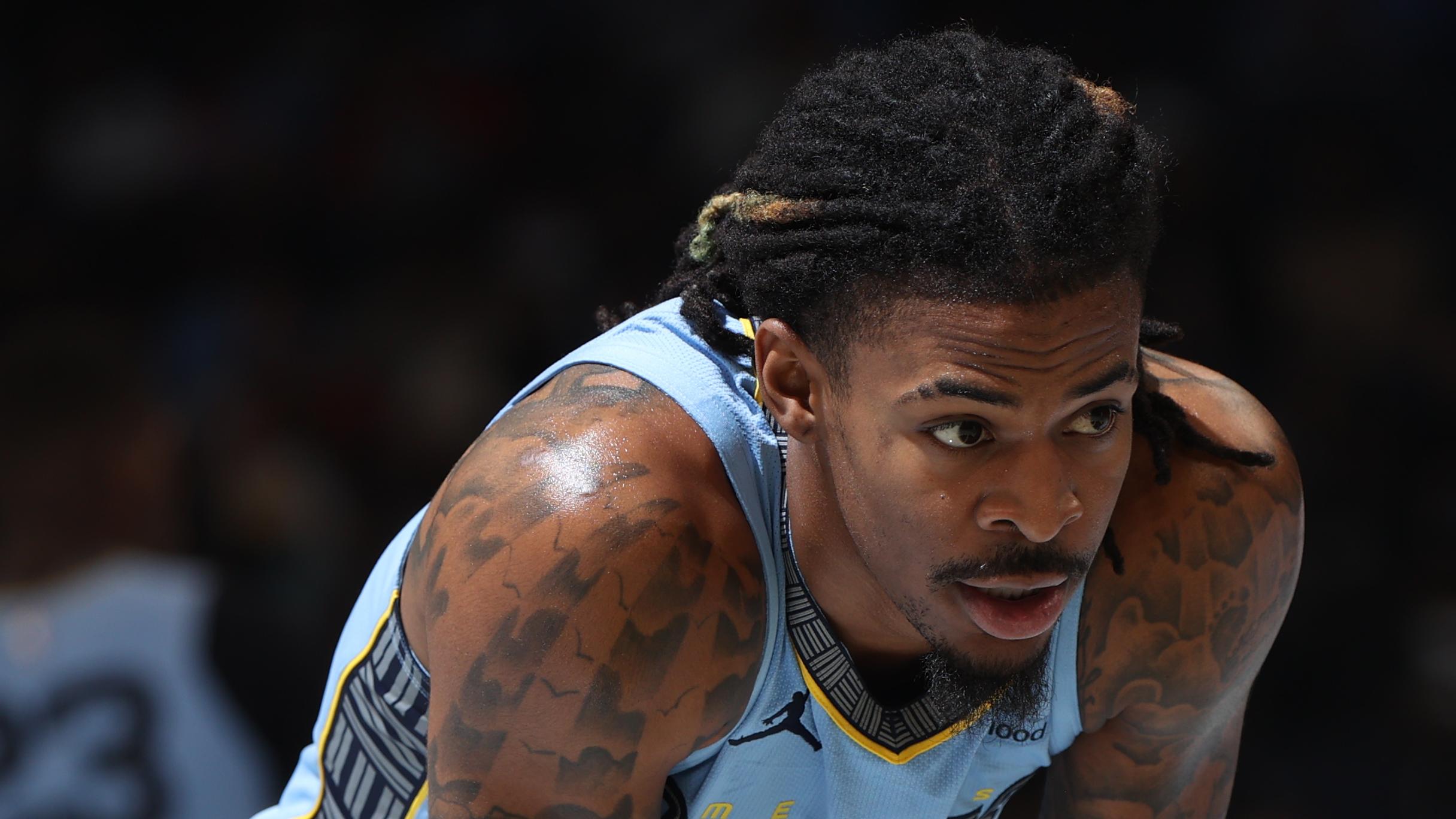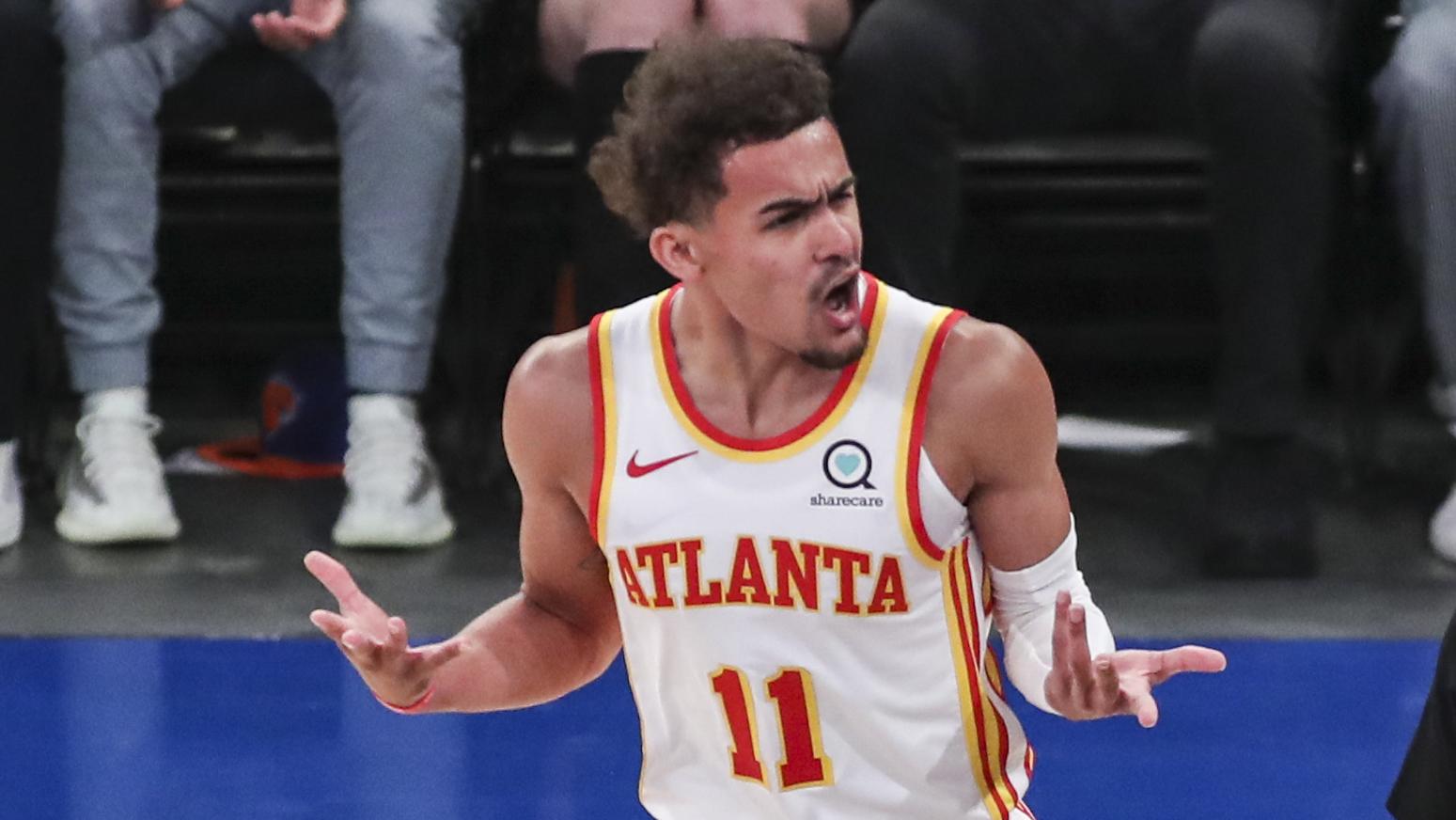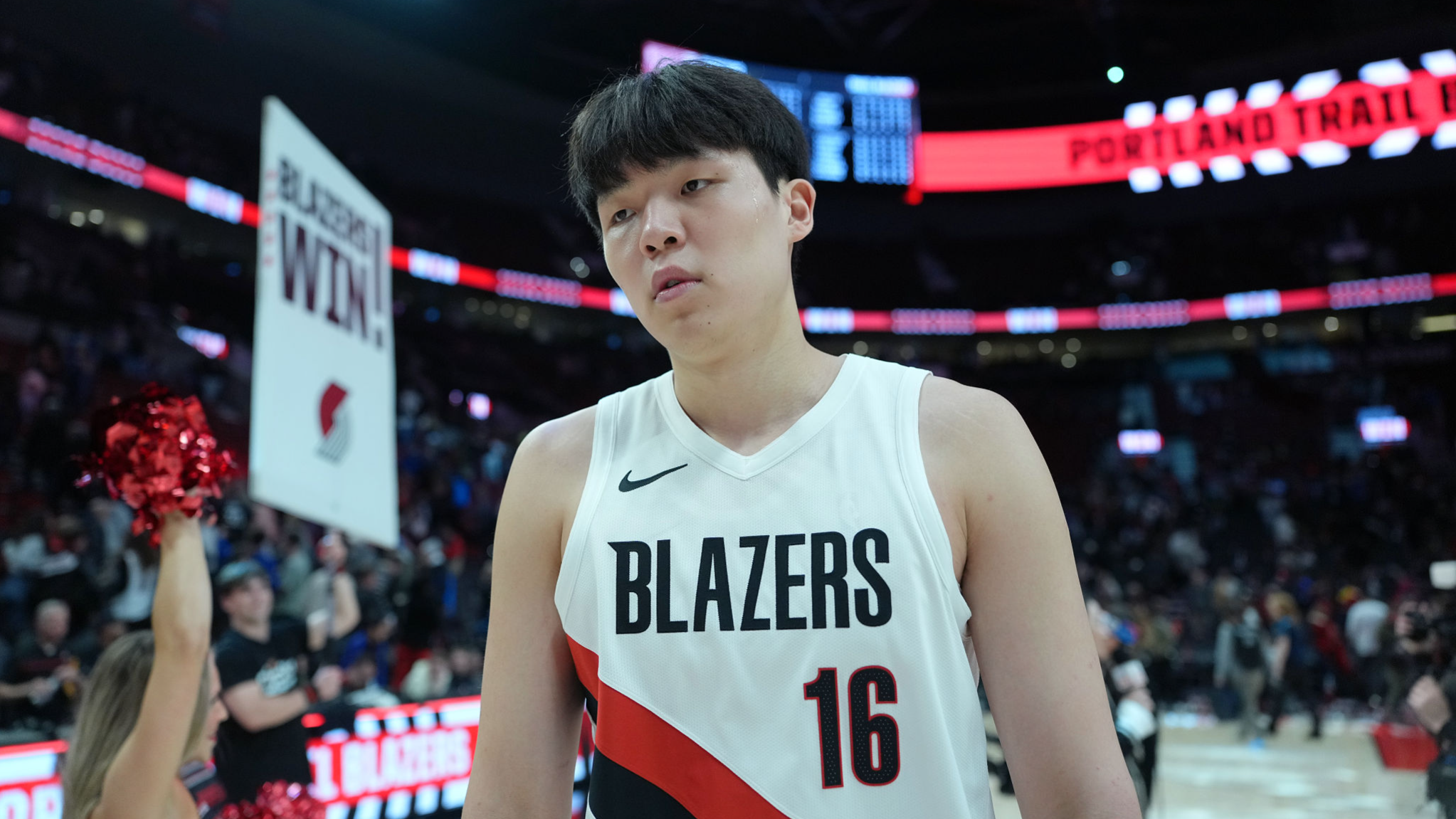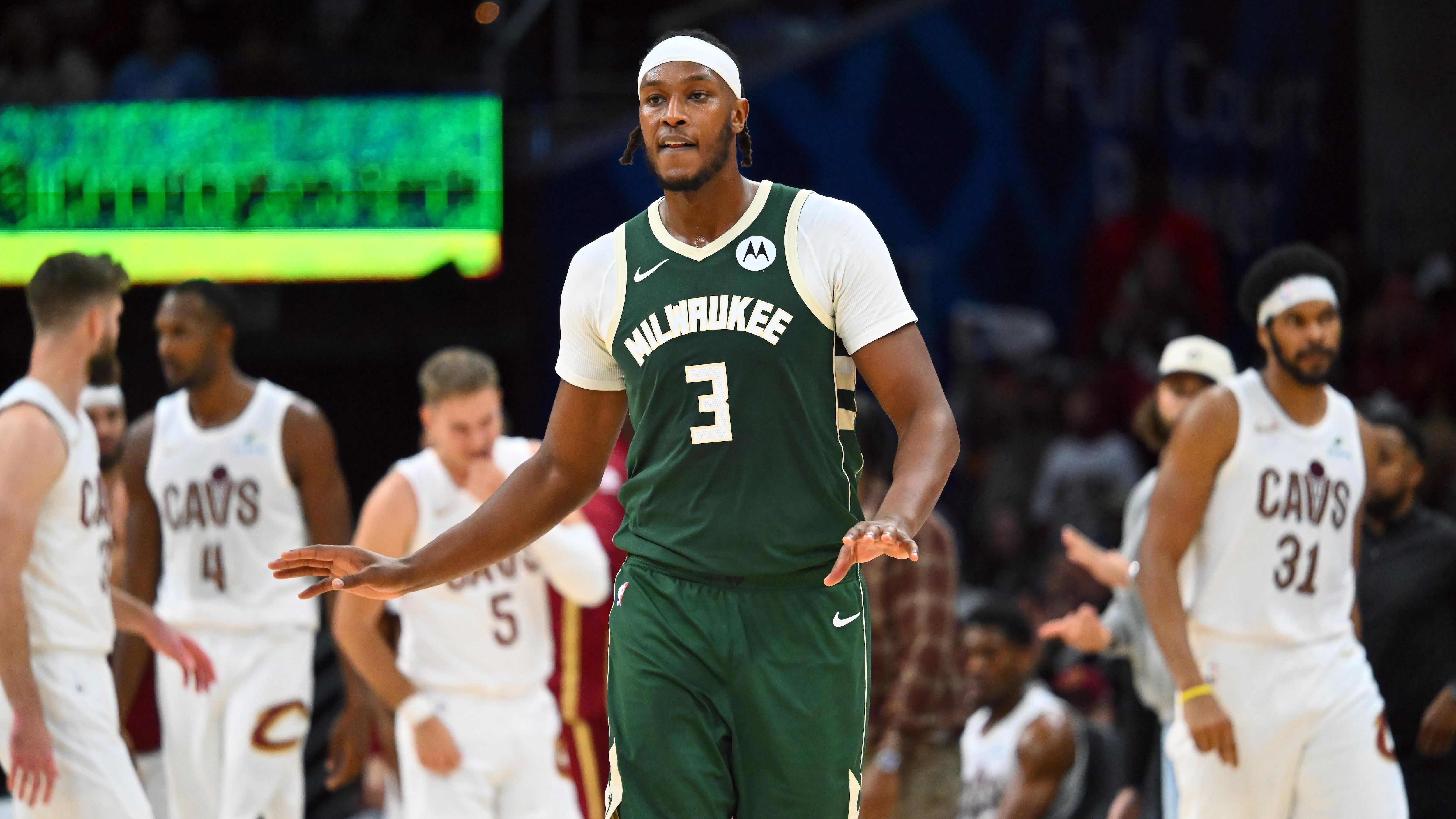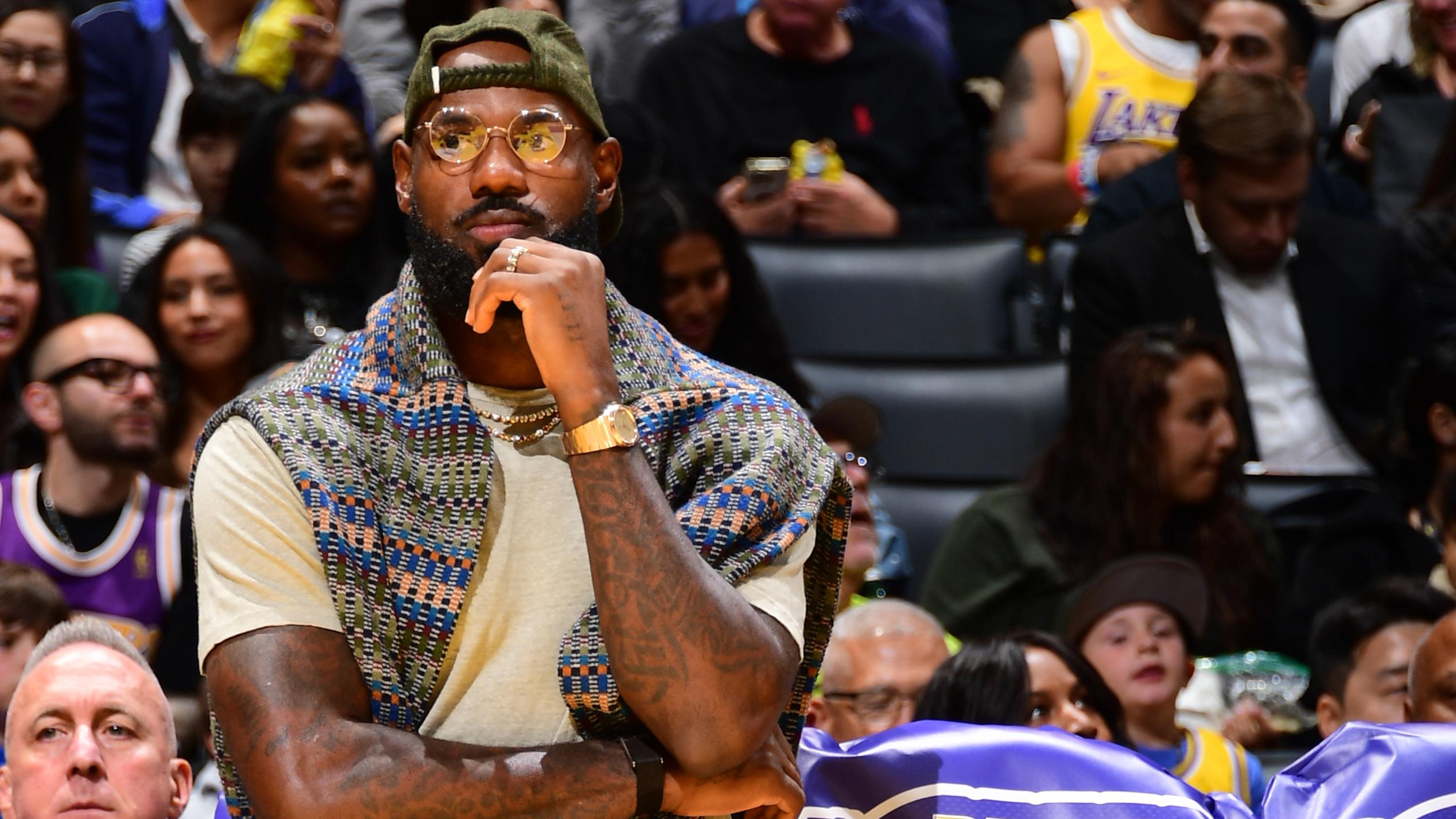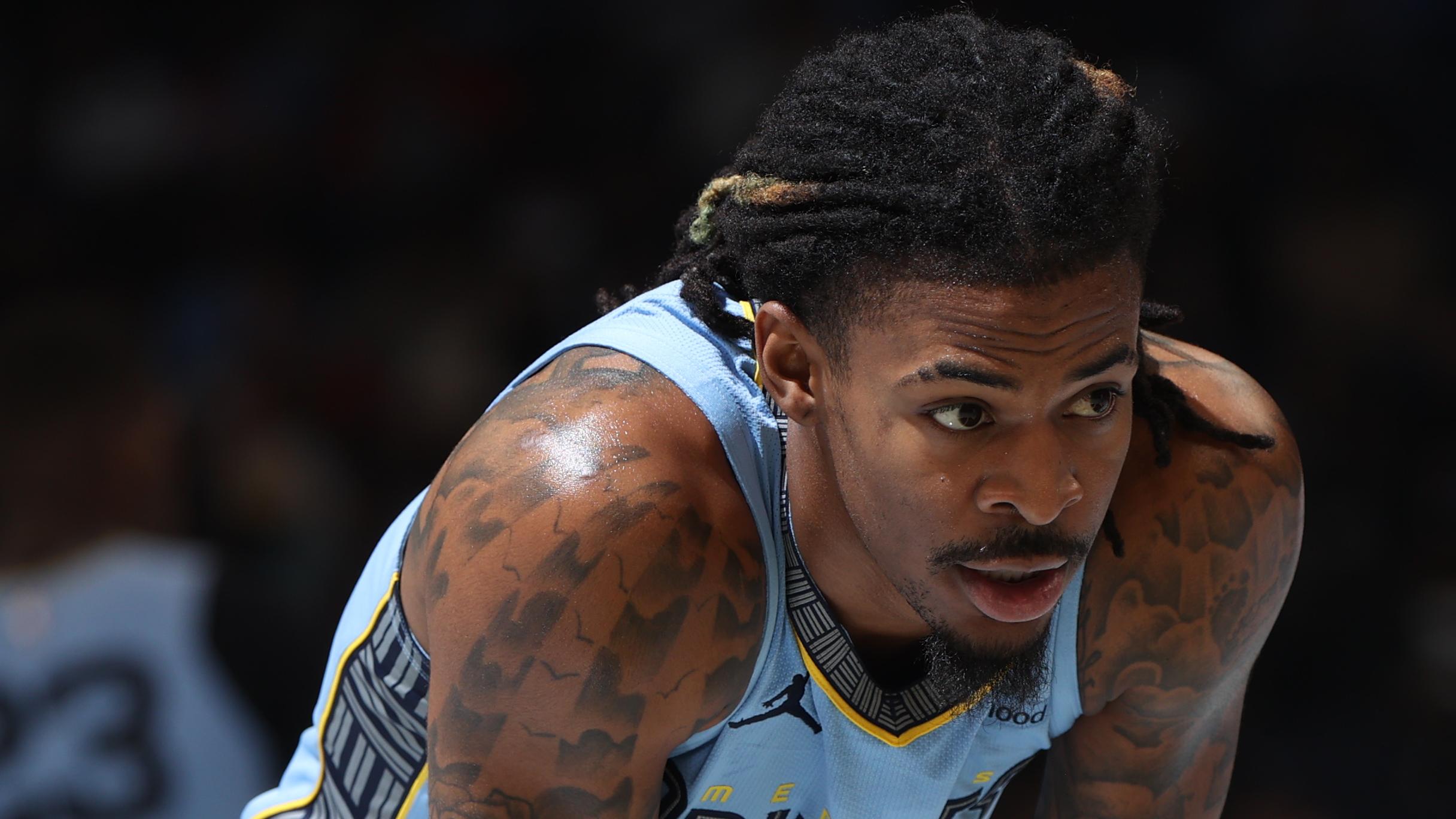Featured Video
Wake Forest's Elite Pitching Lab 🧪
.jpg)
2025-26 NBA Season Power Rankings for All 30 Head Coaches
Every NBA head coach job ticks and tocks on a doomsday clock. The pressure iss relentless, ubiquitous.
Head coaches are expected to manage billion-dollar brands and mercurial superstar egos, inside a furnace of instant gratification. Every timeout call, postgame quote, substitution pattern and lineup decision can spin that revolving door.
With the job becoming "hired to be fired", we're figuring out where all 30 NBA head coaches stand entering the 2025-26 season.
We're not ranking on popularity or potential—just unalloyed "return on investment."
Championships weigh the heaviest. Behind that, consistency: playoff appearances, winning percentages, sustaining excellence across roster turnover.
Then, there's the human factor: managing superstars, weathering trade drama, surviving dissension and occasionally stepping on necks.
As we build out our totem, you'll see some names on this list are legends. Others, new voices on the sidelines.
Every individual head-coach ranking comes with context and logic. In today's NBA, you're only as good as your last series win.
30. Jordan Ott, Phoenix Suns
1 of 30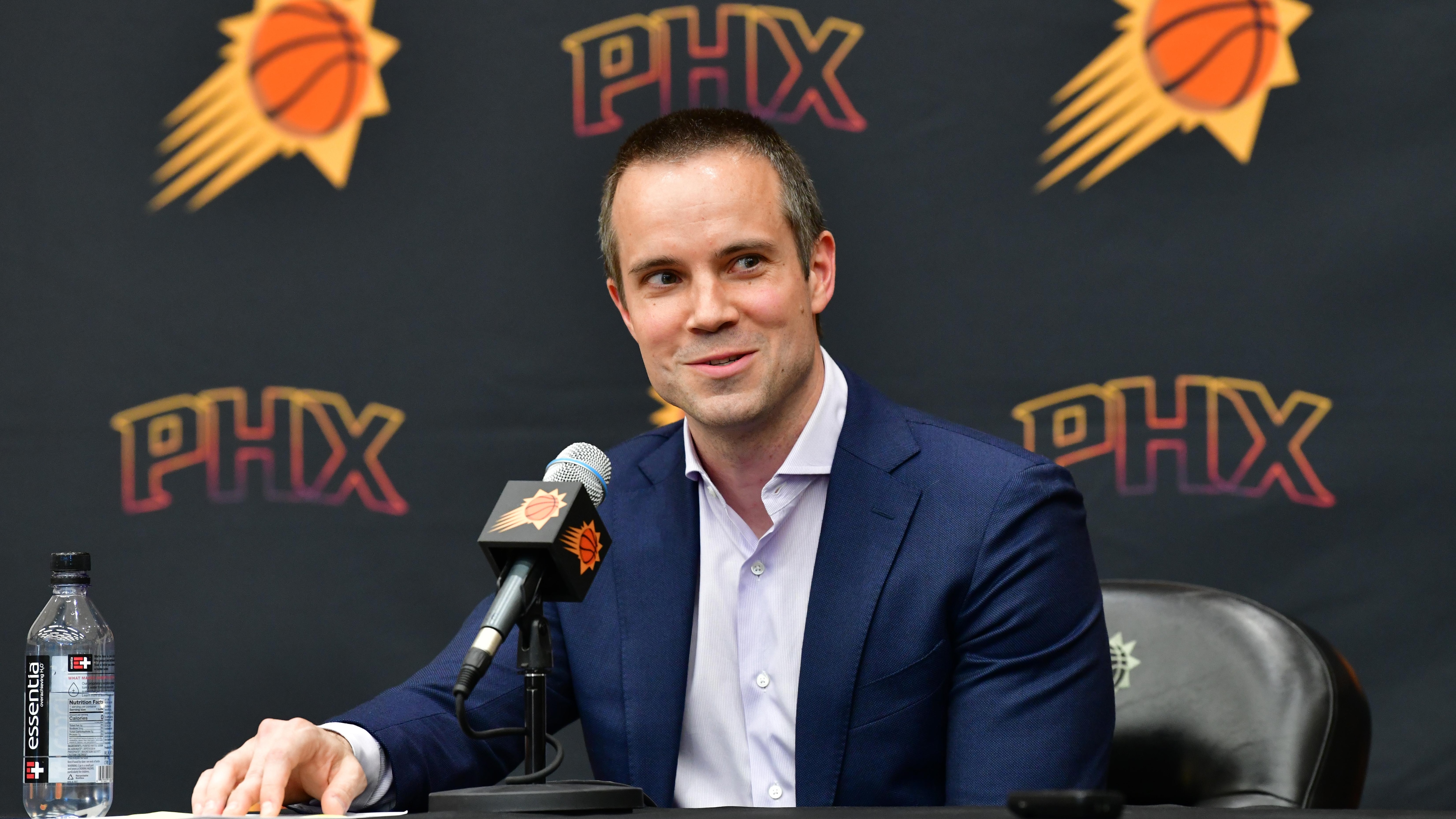
Regular season record: 0–0
Playoff record: 0–0
Experience: First-year head coach
Finals appearances: None
Championships: None
Coach of the Year awards: None
Jordan Ott steps into a powder keg. The Suns are high on potential and low on patience, led by remaining star Devin Booker. After blowing the Kevin Durant gamble, there's a demand for immediate results.
Booker, who turns 29 this month, is on his fourth coach in three years. As a rookie coach, Ott inherits limited roster flexibility. A defensive background and years under Kenny Atkinson give him credibility, but the leap from assistant to first chair can't be understated.
He's ranked last because we don't know anything about him. In a league where experience wins, potential won't cut it—especially in Phoenix, where he's taking over a team of mostly new faces.
The last two coaches, Frank Vogel and Mike Budenholzer, came with championships. And both were out after one year. If Ott can earn Booker's trust early and find structure with four new starters, his reputation could rise fast. But for now, he's starting at the bottom of the board.
29. Jordi Fernández, Brooklyn Nets
2 of 30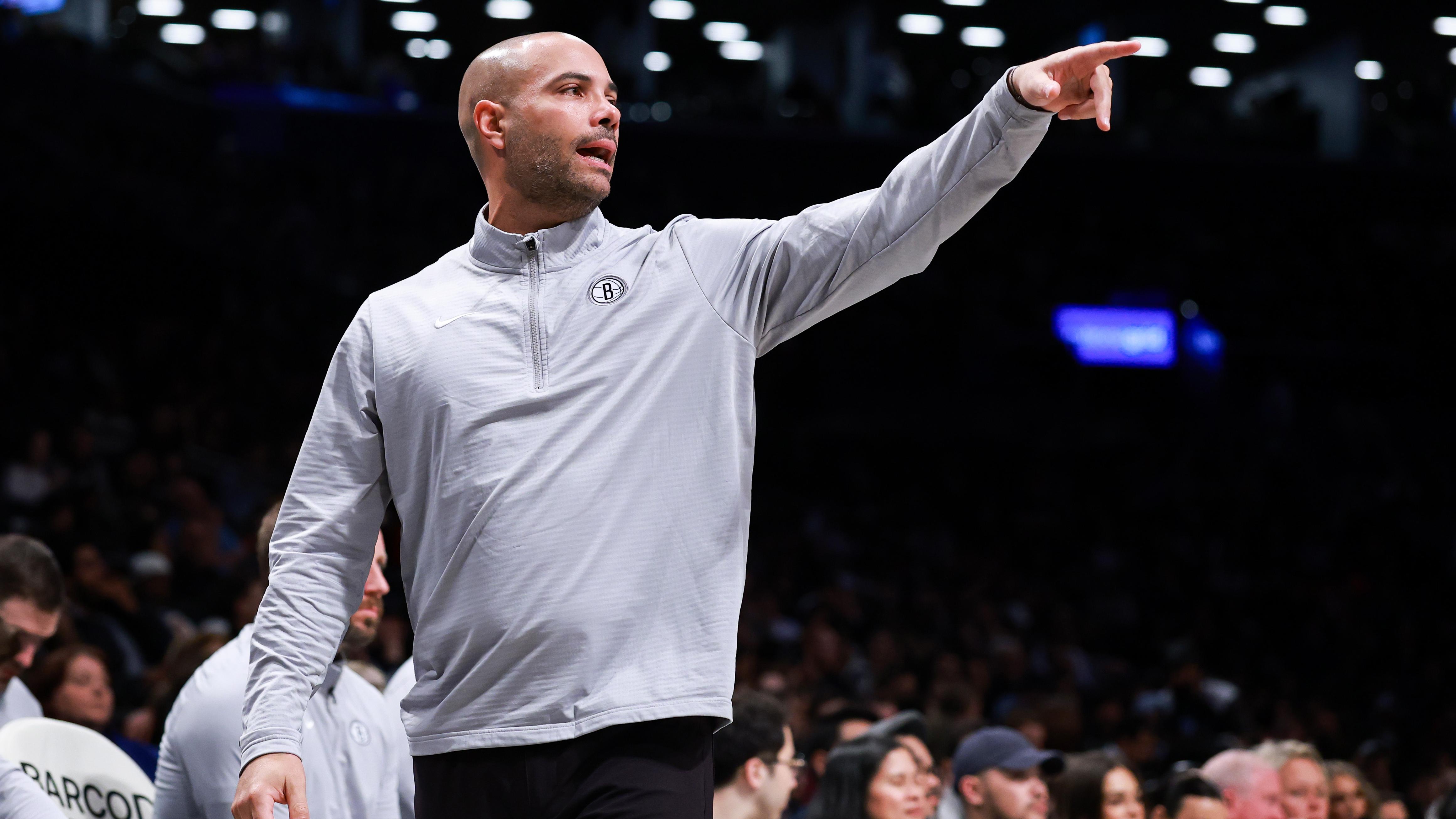
Regular season record: 26–56
Playoff record: 0–0
Experience: One season
Finals appearances: None
Championships: None
Coach of the Year awards: None
Across the river, Madison Square Garden's lights burn brighter than ever. In Brooklyn, Jordi Fernández enters his second year manning the sidelines of a franchise that still can't escape the Knicks' shadow.
After drafting five first-round picks this summer, the Nets are in full rebuild mode. The roster has promise, but no first option. Last season's leading scorer, Cam Thomas, returned on a one-year rental deal.
That instability makes Fernández's developmental background a natural fit. His job is to build accountability for a team that's been in existential limbo since the Kevin Durant-Kyrie Irving-James Harden era imploded.
In his first season, Fernández installed an up-tempo, pace-and-space system designed to generate paint touches and quick-trigger threes. The offense leaned on multiple ball-handlers and early actions—a philosophy rooted in motion offense. At its best, Brooklyn's offense flirted with top-10 efficiency and set franchise records for three-point volume and accuracy.
At its worst, it drifted, losing cohesion in half-court settings without a closer. The front office took four guards in this summer's draft, suggesting Fernández is doubling down on a multi-guard, drive-and-kick template. The spacing is sound. So is the logic. But the question remains: can he stabilize the half-court before the patience runs out?
28. Brian Keefe, Washington Wizards
3 of 30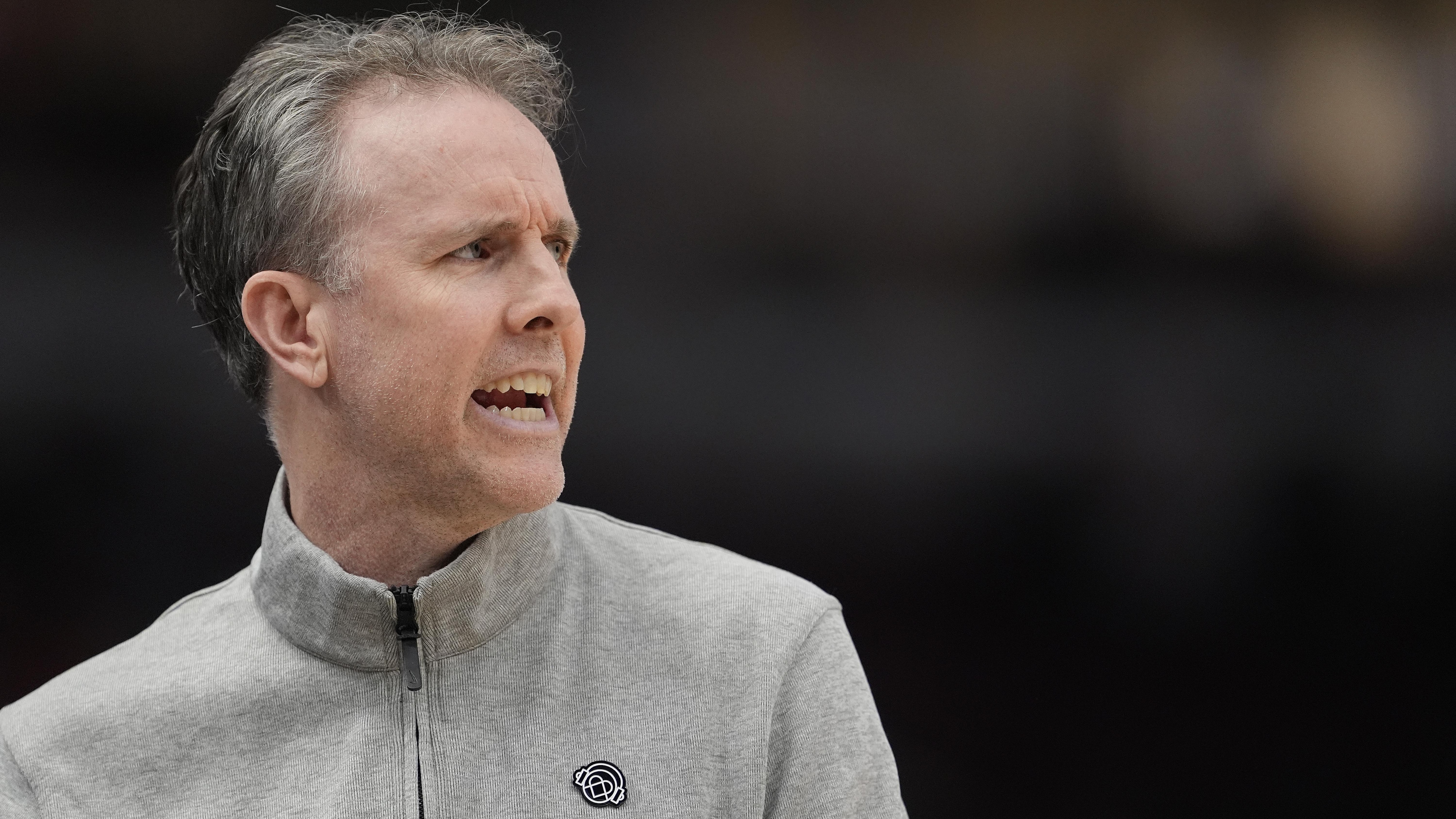
Regular season record: 26–95
Playoff record: 0–0
Experience: One season
Finals appearances: None
Championships: None
Coach of the Year awards: None
Since 2020 the Wizards have cycled through coaches like seasons—Wes Unseld Jr., Scott Brooks and now Brian Keefe, who did solid work stabilizing Washington after taking over midseason.
His double Thunder roots (built around structure, drafting and continuity) suggest a "culture-first" blueprint—a direction the Wizards badly need. Thanks to solid recent drafting, Keefe is working with the skeleton of a good defensive roster with Alex Sarr, Tre Johnson, Bub Carrington and Bilal Coulibaly.
On offense, Keefe and his staff shifted toward a modern, read-and-react framework with fewer rigid sets and more principle-based decisions like cutting and spacing. They've toggled lineups to hunt matchups (including small-ball looks when appropriate) and emphasized ball movement and pace.
Keefe himself has pointed to nights when the "ball was moving [and] we were sharing it" as a benchmark for whether they're on track. Keefe edges Fernández because Washington looks more organized, even in defeat. Washington's rebuild will take years. As will Keefe's ascent on this list.
27. Doug Christie, Sacramento Kings
4 of 30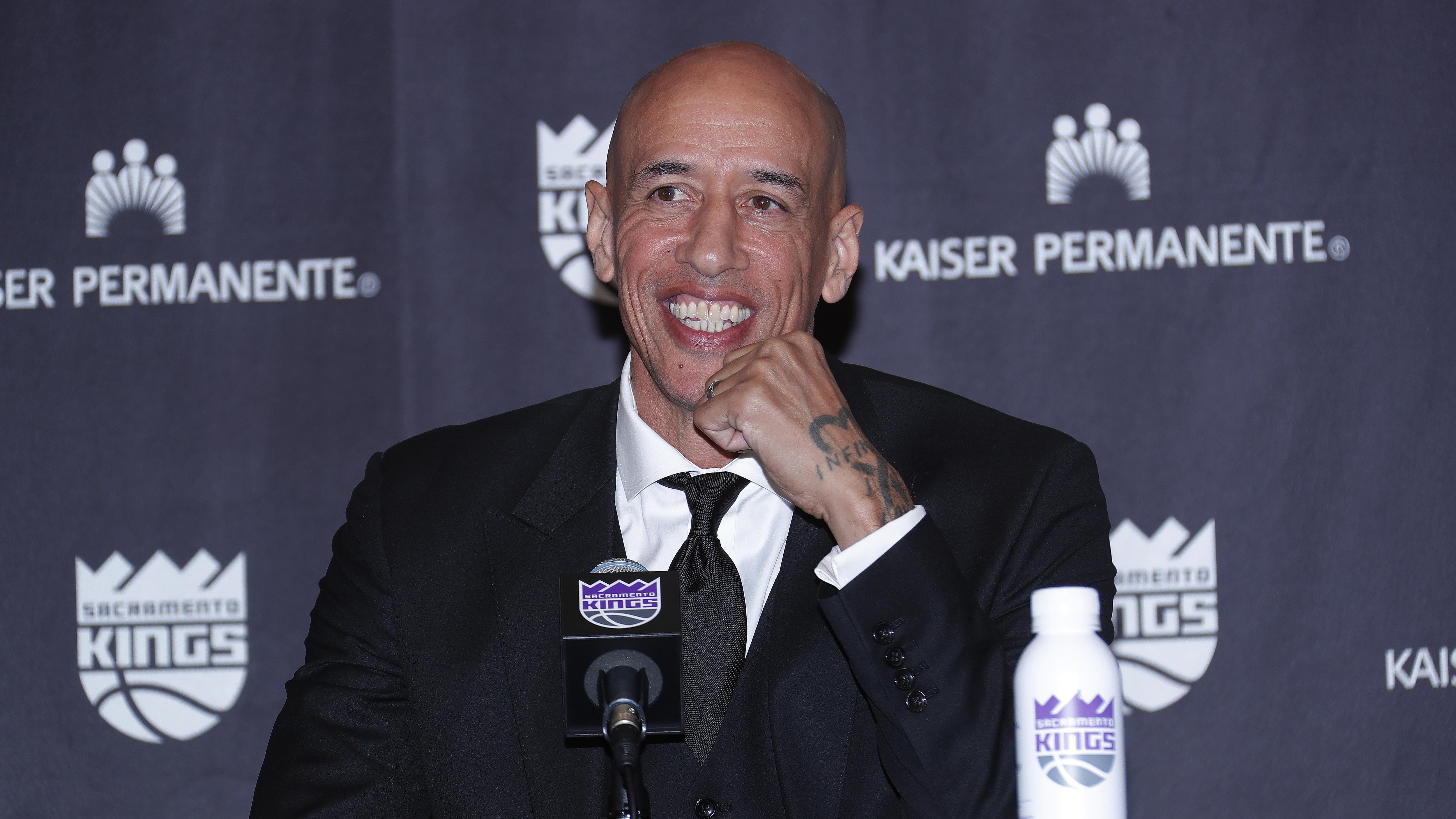
Regular season record: 27–24
Playoff record: 0–0
Experience: One season
Finals appearances: none
Championships: none
Coach of the Year awards: none
As a respected former player and assistant, Doug Christie understands the Kings locker room, having been a bridge between Mike Brown's staff and the players during their recent run. Christie's promotion in Sacramento signals the front office prioritizing continuity following Brown's renaissance.
During his interim stint, the Kings maintained a top-10 offense, ranking 10th in field-goal and three-point percentage and 11th in points per game.
Sacramento's identity remains a motion-heavy, fast-paced attack anchored by veteran wings applying downhill pressure and Domantas Sabonis's playmaking at the elbows. Adding Dennis Schröder as a stabilizing point guard will help their point-of-attack. But until Keegan Murray becomes their best player, they will struggle to get back to the playoffs.
Whether Christie can institute a defensive backbone (they ranked 22nd last season in defensive rating) will determine if his promotion merely prolongs their middling, play-in ceiling. Christie ranks higher than Keefe because at least the offense is humming at a playoff level.
26. Tuomas Iisalo, Memphis Grizzlies
5 of 30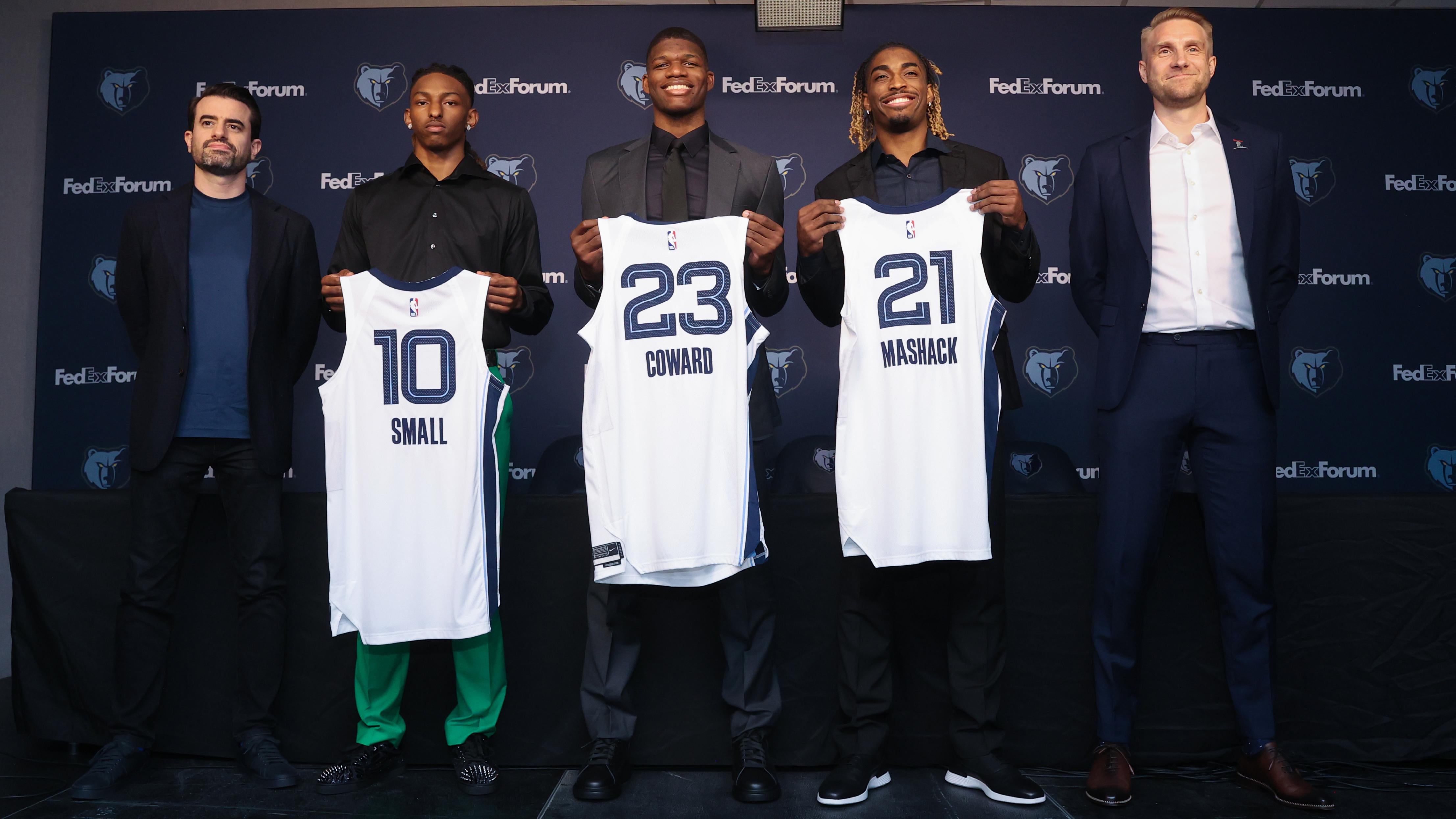
Regular season record: 4–5
Playoff record: 0–4
Experience: One season
Finals appearances: none
Championships: none
Coach of the Year awards: none
Tuomas Iisalo's offensive identity so far suggests a bold, high-octane heater. His European résumé (leading Paris to a record‐setting scoring run in the EuroCup) exudes a pedagogical precision the Grizzlies have long lacked.
Players rally around his phrase "speed kills" to push the pace to punish defenses before they're set. Under his direction as lead assistant, Memphis vaulted to one of the league's most explosive offenses with extra emphasis on spacing, cutting, and quick reads. His system emphasizes strong offensive rebounding and variable "big man" roles in pick-and-roll or motion frameworks, which bodes well for Zach Edey's footwork and passing.
While his head coaching stint is still limited (he coached nine games as interim and went 4-5), the early read is Iisalo's putting the ball back in Ja Morant's hands. Iisalo's Euro-brained creativity lands him ahead of Christie but below Mitch Johnson, who's got generational talent to work with.
25. Mitch Johnson, San Antonio Spurs
6 of 30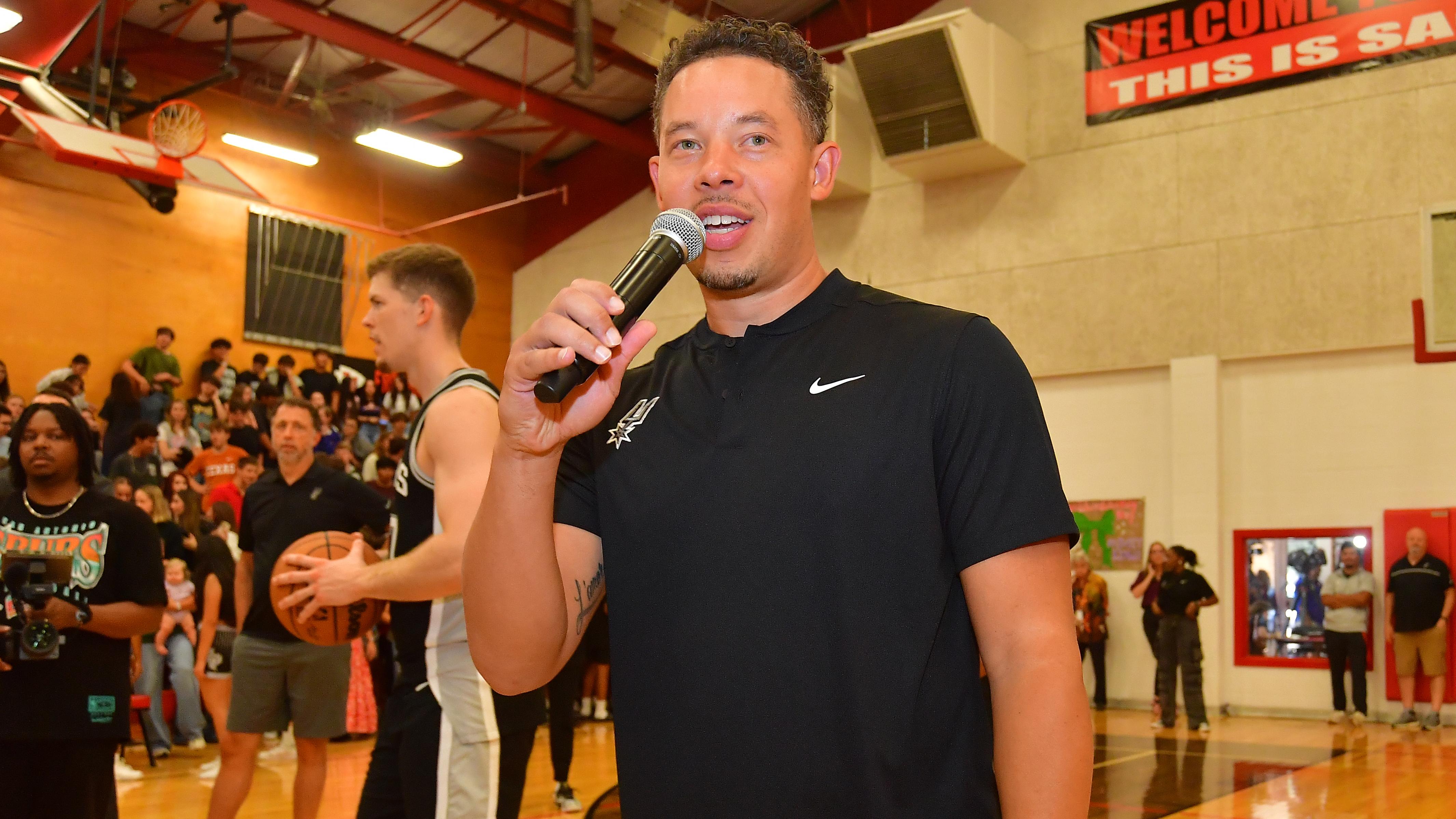
Regular season record: 32–45
Playoff record: 0–0
Experience: One season
Finals appearances: None
Championships: None
Coach of the Year awards: None
Double blessings to Greg Popovich's continued health. Like half the league, Mitch Johnson's ascent to the Spurs' head job comes straight from the Pop coaching tree. After the legend retired last season due to health, Johnson's interim was tasked with maintaining Pop's principles of ball movement and positional versatility. The Spurs under Johnson have still looked the same team in transition, a freight train propelled by Victor Wembanyama and De'Aaron Fox.
The major test is how aggressively he adjusts the offense to Wembanyama's two-way talent: do you isolate, run screen actions, or build everything off of spacing and movement?
Thankfully, he has one of the most talented young cores of the 21st century to help answer that question.
24. Will Hardy, Utah Jazz
7 of 30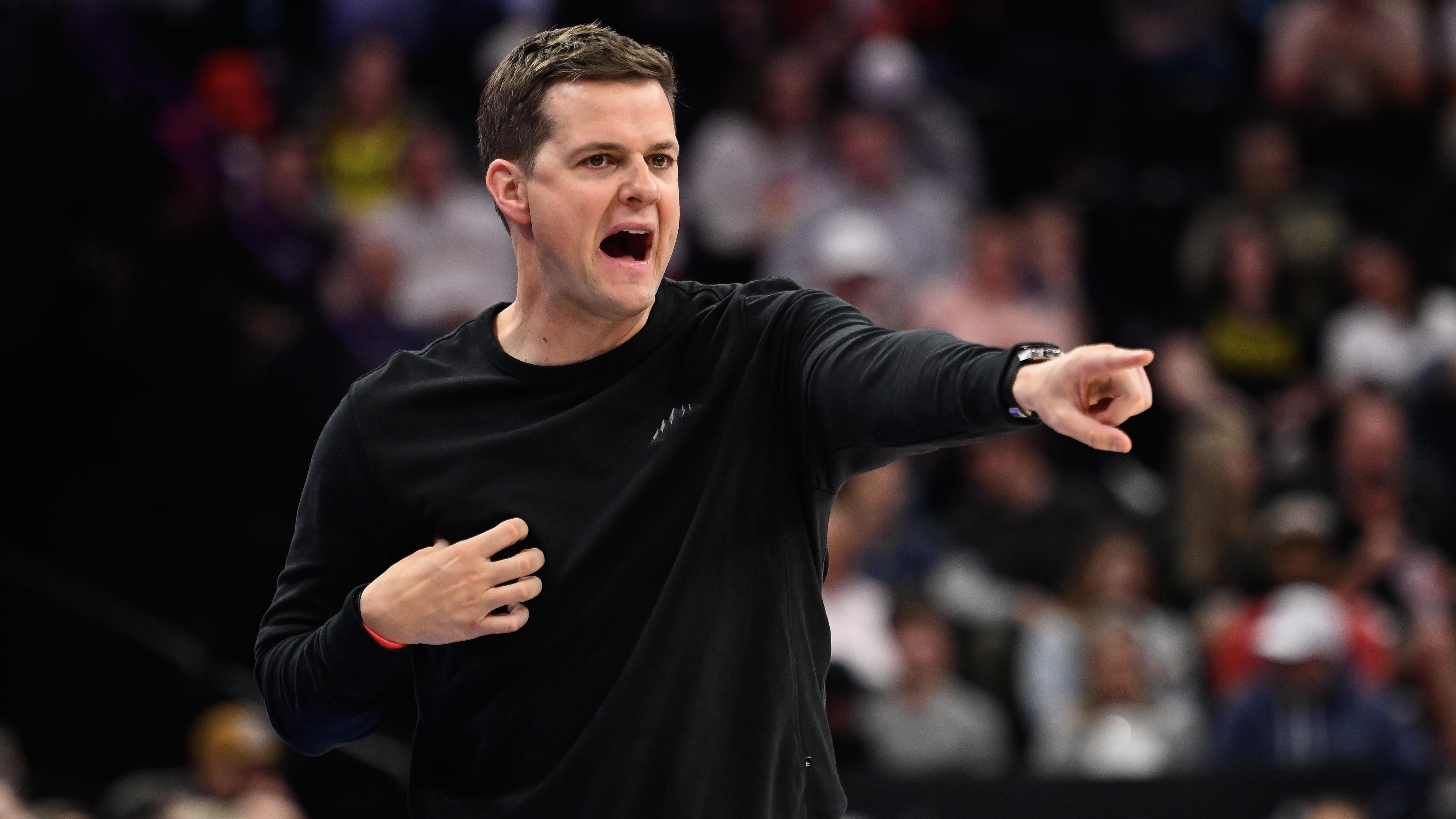
Regular season record: 85–161
Playoff record: 0–0
Experience: Two seasons
Finals appearances: None
Championships: None
Coach of the Year awards: None
In a podcast appearance, Will Hardy discussed giving players "breathing room"—if they feel comfortable on the offensive end, they're more likely to give better effort defensively. He also emphasized transition flare screens to utilize tempo with ball screens and studying late-game analytics to exploit how defenses react in tight windows.
When things are working, the Jazz use multiple screens to free shooters and create mismatches for Isaiah Collier and Keyonte George. But there's still a tension: Utah has at times struggled in half-court sets, especially when relying on iso. Until they get a first-option (no slight to Lauri Markkanen) execution lapses and a lack of cohesion in half-court will stall them.
He's gotta make his system work with a young, inconsistent roster in flux. Who knows how many of their new veteran additions (Kyle Anderson, Jusuf Nurkić, Kevin Love) will stick? Because of that, Hardy's ranking reflects potential only. The offense is interesting, but who will make it great?
23. Darko Rajaković, Toronto Raptors
8 of 30
Regular season record: 55–109
Playoff record: 0–0
Experience: One season
Finals appearances: None
Championships: None
Coach of the Year awards: None
Darko Rajaković's tenure in Toronto is already marked by a deliberate break from the isolation-heavy offenses that preceded him. He's introduced a "0.5 offense," a philosophy predicated on rapid decision-making: shoot, pass, or attack immediately upon the catch.
That's led to fewer isolations (Toronto ran 3.5 more isolations per game under Nick Nurse) and more handoffs, cuts, and off-ball movement. Rajaković hasn't hesitated to bench players who resist or struggle to adapt to the new style.
He's also recalibrating Scottie Barnes's role; Rajaković said Barnes would play off-ball more this season to create harmony with Brandon Ingram handling primary duties. You can already see the architecture of a new identity. Now make the playoffs. No excuses.
22. Willie Green, New Orleans
9 of 30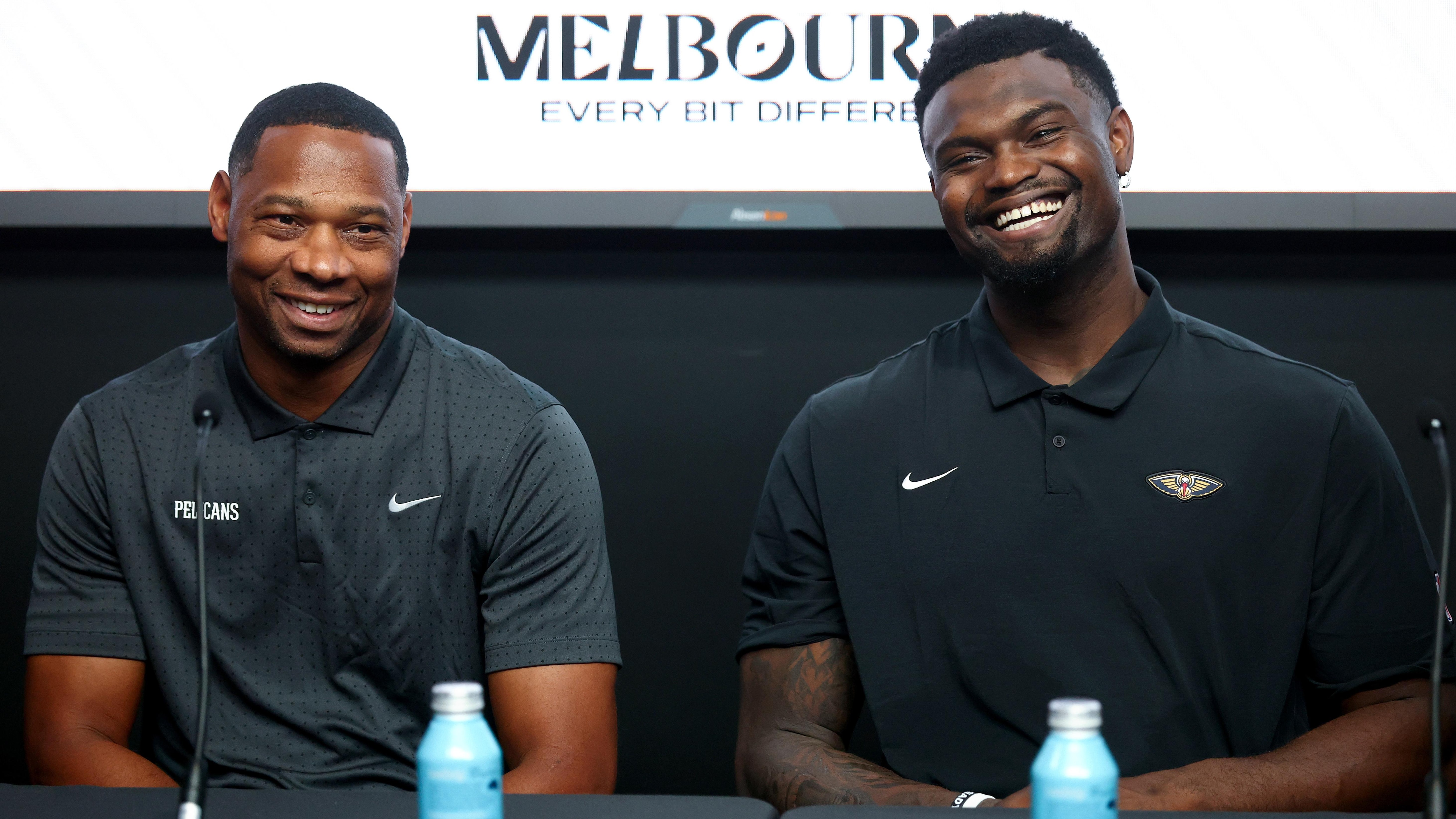
Regular season record: 148–180
Playoff record: 2–8
Experience: Four seasons
Finals appearances: None
Championships: None
Coach of the Year awards: None
Entering his fifth season in New Orleans, Willie Green should feel the heat With Joe Dumars now overseeing basketball operations, the Pelicans are reshaping their identity around accountability. Green has tempered his past push for "40 threes a night" into a more balanced spacing philosophy—still emphasizing perimeter volume and tempo but with greater focus on flow and fit around Zion Williamson's inside dominance.
After a brutal 21-61 season racked by injuries and roster turnover, Green has a retooled perimeter rotation. The staff believes a healthy Zion remains the franchise's fulcrum, and Green's rapport with him could be the key to (finally) unlocking the big man's consistency. Green anchors the early-20s part of the list because he's been steadier than the developmental crowd under him.
Still, his margin for error is shrinking. His 150–188 record in New Orleans underscores how limited the patience may be under new leadership. Dumars' arrival brings championship pedigree. Green's collaborative, servant-leadership approach has earned respect, but results need to match. If his team can stay healthy (looking at you Zion) and execute the more connected, uptempo system he envisions, New Orleans can and should get out the first round.
21. Billy Donovan, Chicago Bulls
10 of 30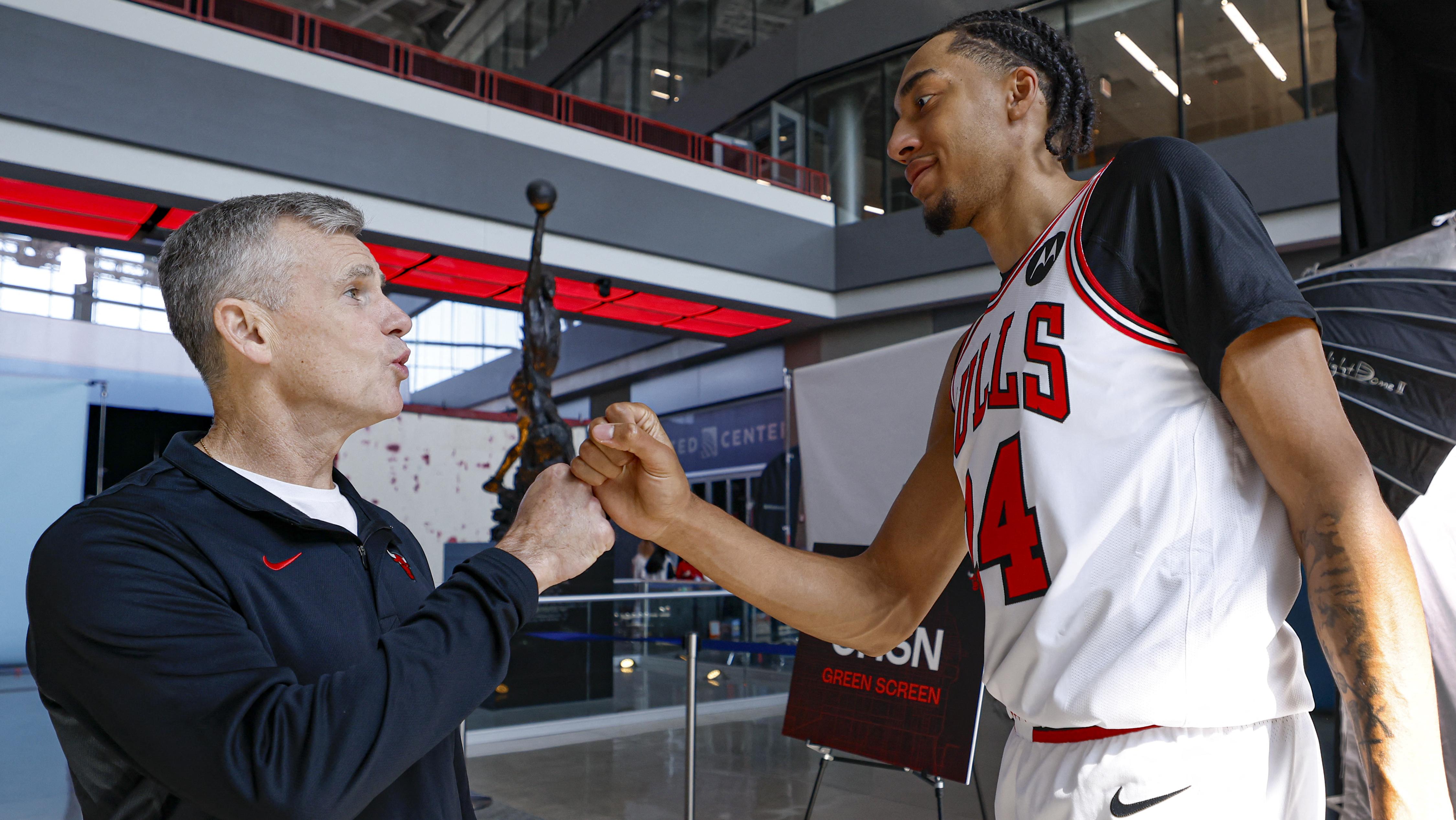
Regular season record: 438–362
Playoff record: 19–27
Experience: 10 seasons
Finals appearances: None
Championships: None
Coach of the Year awards: None
The Florida years still ring bells. Back to back NCAA championships will do that. But since coaching in the NBA, Billy Donovan's been the face of NBA mediocrity. In Chicago, he's managed just one playoff appearance in five seasons, two straight under .500 finishes, and a play-in flameout last season that felt inevitable. Statistically, his Bulls teams have hovered around league average across the board.
His Oklahoma City tenure told a similar story. Donovan inherited Kevin Durant and Russell Westbrook, reached the 2016 Western Conference Finals and then watched a 3-1 lead disappear to Golden State. That remains the high-water mark of his NBA career. So yes, the Bulls' decision to extend Donovan makes sense from a stability standpoint. He's steady, if not pedestrian. Even respected by his peers. But under his stewardship, Chicago has remained a treadmill.
20. JJ Redick, Los Angeles Lakers
11 of 30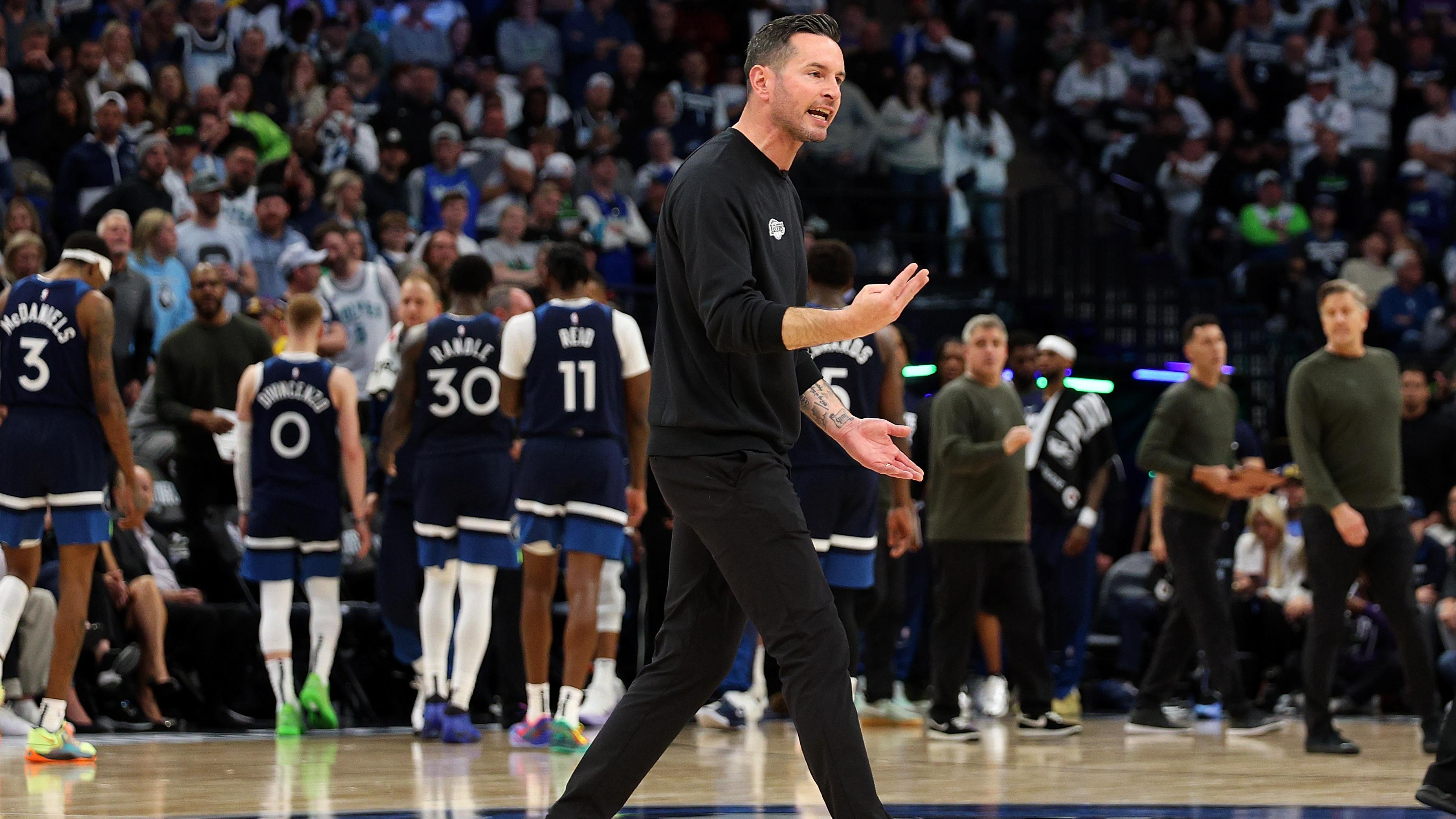
Regular season record: 50–32
Playoff record: 1–4
Experience: One season
Finals appearances: None
Championships: None
Coach of the Year awards: None
JJ Redick has brought some respect to the Crypto.com sideline by transforming the Lakers into a flowing, position-less offense built on adaptive reads by two visionaries: LeBron James and Luka Dončić.
Under Redick, Los Angeles climbed into the NBA's top 10 in both points per game (116.6) and offensive rating (117.0), ranking among league leaders in assist-to-turnover ratio and overall efficiency. Drawing from analytics, he's emphasized three-point volume (up nearly 25%) while playing through Dončić, now the primary hub of the offense via post-ups, drives, and high pick-and-rolls.
Redick's play-calling throughout the season has showcased an aggressive blend of creativity and demand. He's leaned heavily on horns variations, using staggered screens, handoffs, and flare actions to generate mismatches and open corner looks.
Redick's system also layers in off-ball screening to disguise LeBron and Dončić while punish overhelping defenses. This creativity helped notch a 50-32 record, good for third in the West, all while navigating the wildest trade in NBA history mid-season.
This season he's gotta answer: is it more than novelty?
19. Chauncey Billups, Portland Trail Blazers
12 of 30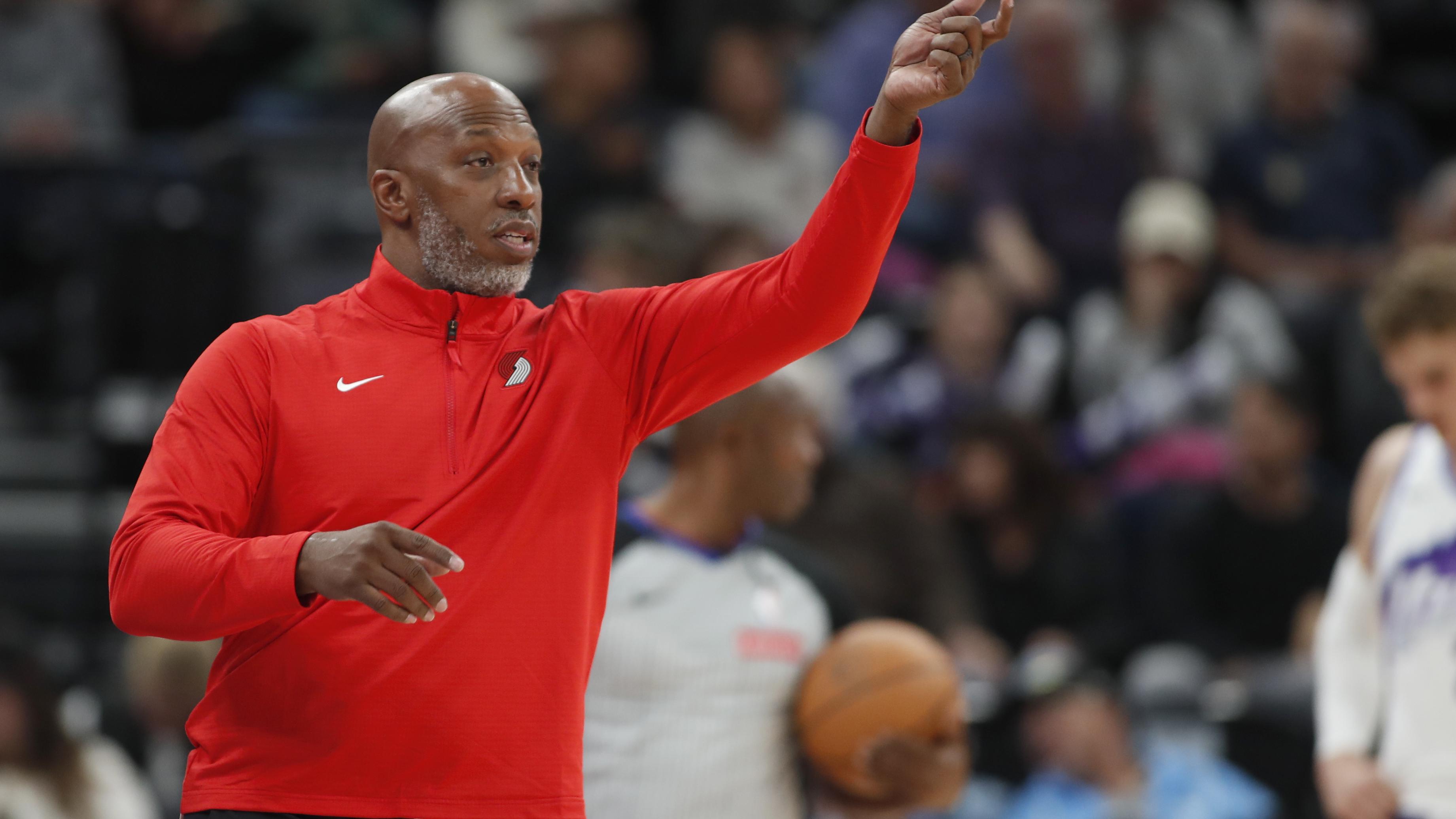
Regular season record: 117–211
Playoff record: 0–0
Experience: Four seasons
Finals appearances: None
Championships: None
Coach of the Year awards: None
Put some respect on "Big Shot's" name.
Chauncey Billups brings the mindset of a former champion floor general. In Portland, inconsistency remains his biggest hurdle. The wins haven't come, but they will. Roster instability, Scoot Henderson's slow start and injuries have derailed cohesion. Even Billups admits the Blazers have been "too predictable" in the half court.
He's shown a sharp touch with player development. Billups has molded Donovan Clingan through tough love, praising his rebounding and rim protection while challenging him to improve "positioning and patience" after uneven performances. With Shaedon Sharpe, Billups emphasizes aggression and confidence, telling him to "stay on the attack" to keep pressure on defenses and open space for teammates.
He's trusted for candid, even two-way communication and a willingness to reshape his staff—adding Tiago Splitter and Quinton Crawford this summer. And he isn't afraid to recalibrate, putting him mid-list, right above Redick's flash and below Adelman's structure. In a league obsessed with youth and speed, "Big Shot" is preaching patience.
18. David Adelman, Denver Nuggets
13 of 30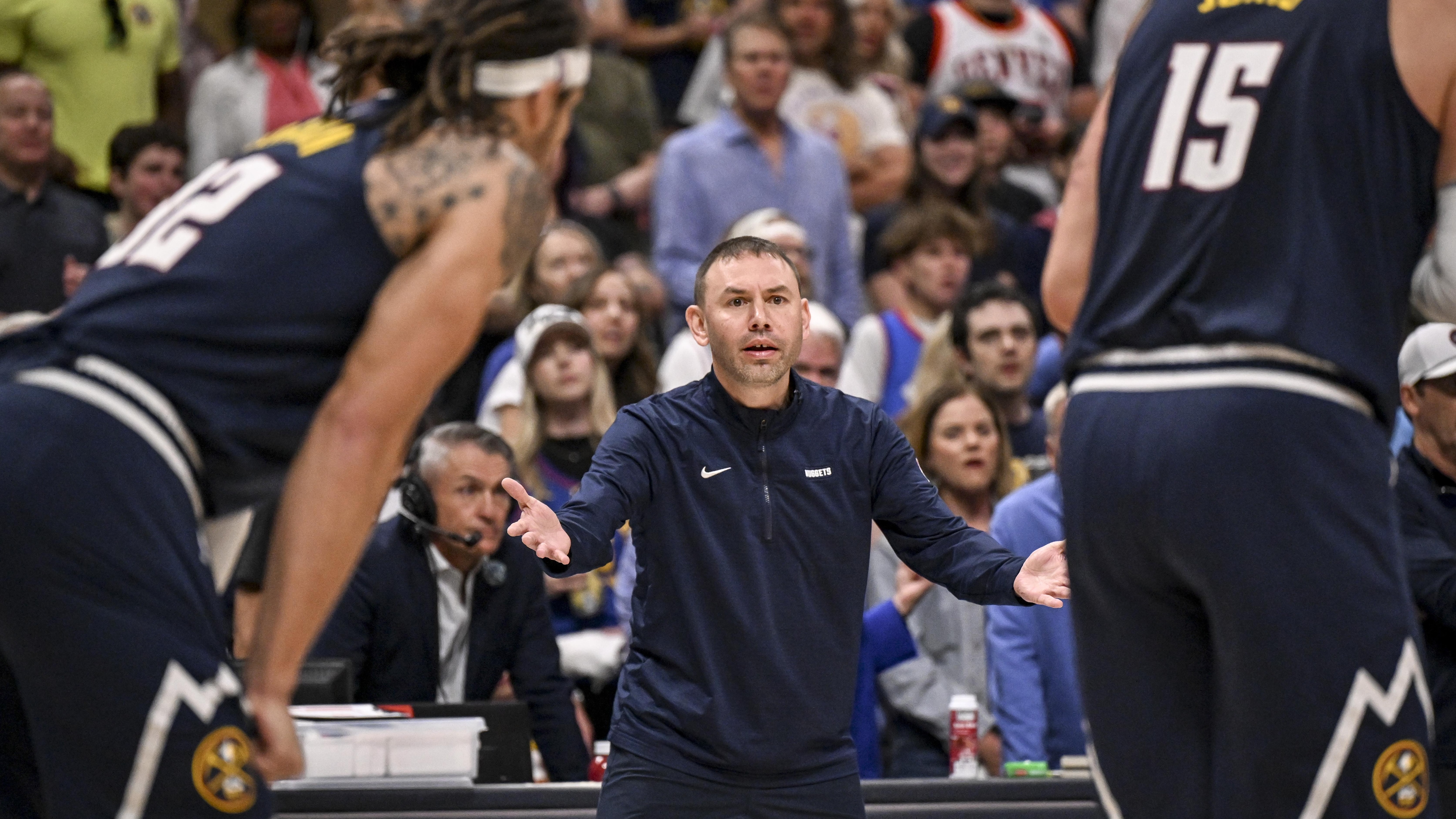
Regular season record: 3–3
Playoff record: 7–7
Experience: One season
Finals appearances: None
Championships: None
Coach of the Year awards: None
Oh boy, did Denver's top job carry enormous expectations for David Adelman. He already comes with a last name that already carries weight in NBA circles. He hasn't ripped up the blueprint left by Mike Malone—Nikola Jokić and Jamal Murray pick-and-rolls, corner spacing, weak-side cuts, and ram screen actions remain the spine of the offense.
In his introductory remarks, he underscored that "we have to get back to being an execution-based team…if that takes away from some of our [stats], I think that's okay if it wins you a game in May."
Malone's offenses often leaned heavier into flow, and strict roles; he built entire schemes around the Jokić-Murray five-out spacing, and weak-side actions. Adelman's postseason debut as Denver's head coach underscored both his sharp offensive mind and his growing pains as a defensive tactician.
Against the Clippers in the playoffs, Denver's defense unraveled on the smallest details: lazy tags, slow hedges, and guards sliding under screens. Hedge-and-recover possessions jumped the shark.
And look, he's got Jokić. That alone buys him time and credibility. But talent covers cracks only so long.
17. Charles Lee, Charlotte Hornets
14 of 30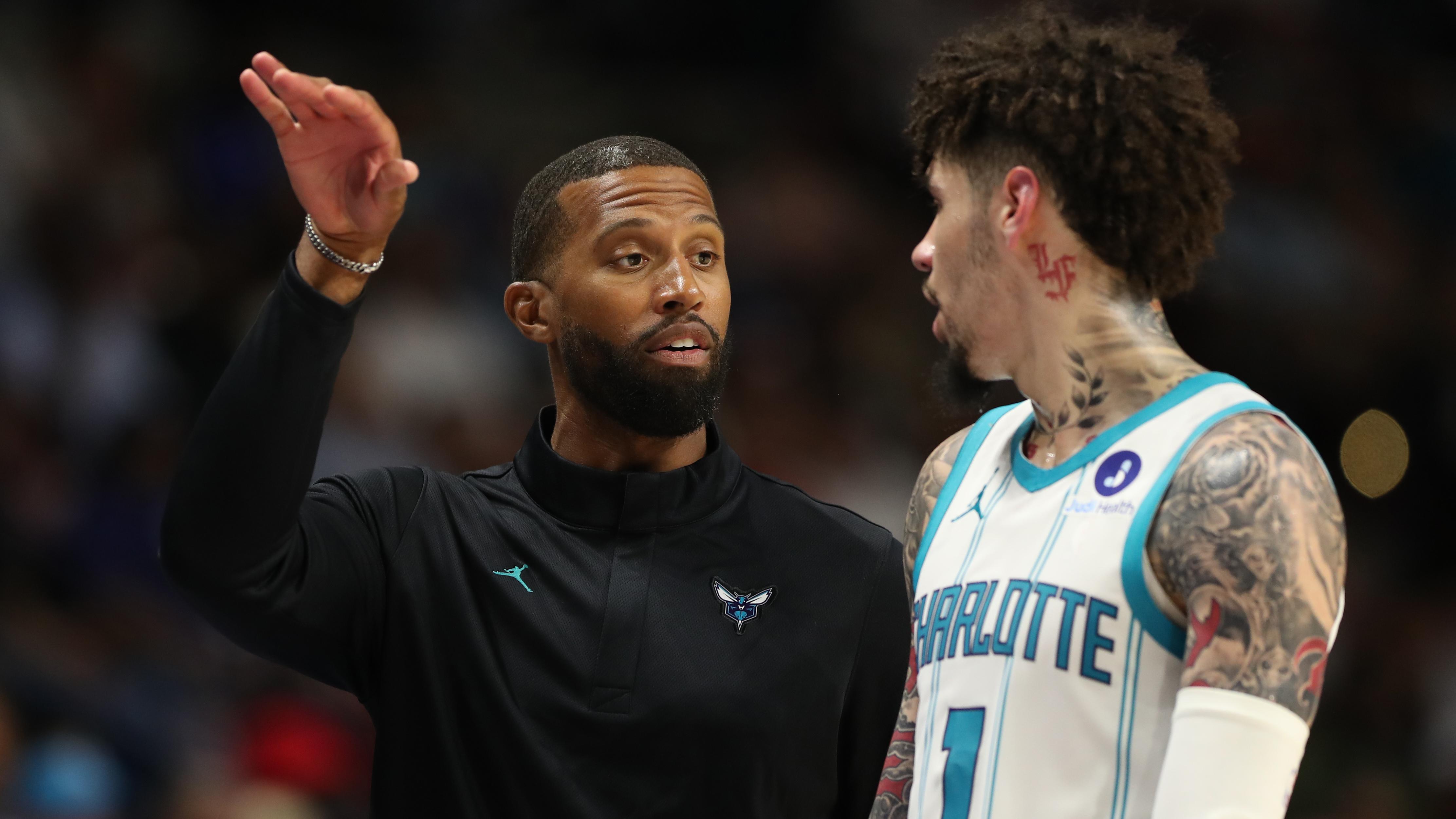
Regular season record: 19–63
Playoff record: 0–0
Experience: One season
Finals appearances: None
Championships: None
Coach of the Year awards: None
In pressers, Charles Lee talks like a reformer. He's injecting more pace and space into the Hornets' attack, openly criticizing last season's sluggish pace (Charlotte ranked 23rd in pace at 98.22 possessions per 48 minutes) and promising more movement, more spacing, and more read-and-react actions off screens and cuts.
With Brandon Miller, Lee has leaned into giving him freedom as a perimeter scorer and cutter, trusting him to make reads off the ball. When Miller returned from injury, Lee pointed to a moment when the rookie "gathered the group" to tighten pick-and-roll coverage—a microcosm of Lee's developmental ethos.
He edges out more inexperienced coaches thanks to his early offensive identity and the chemistry he's fostering between Miller and LaMelo Ball, but until he proves he can translate that fluid style into disciplined half-court production and making the playoffs in the weakest division, he remains mid-tier.
16. Jamahl Mosley, Orlando Magic
15 of 30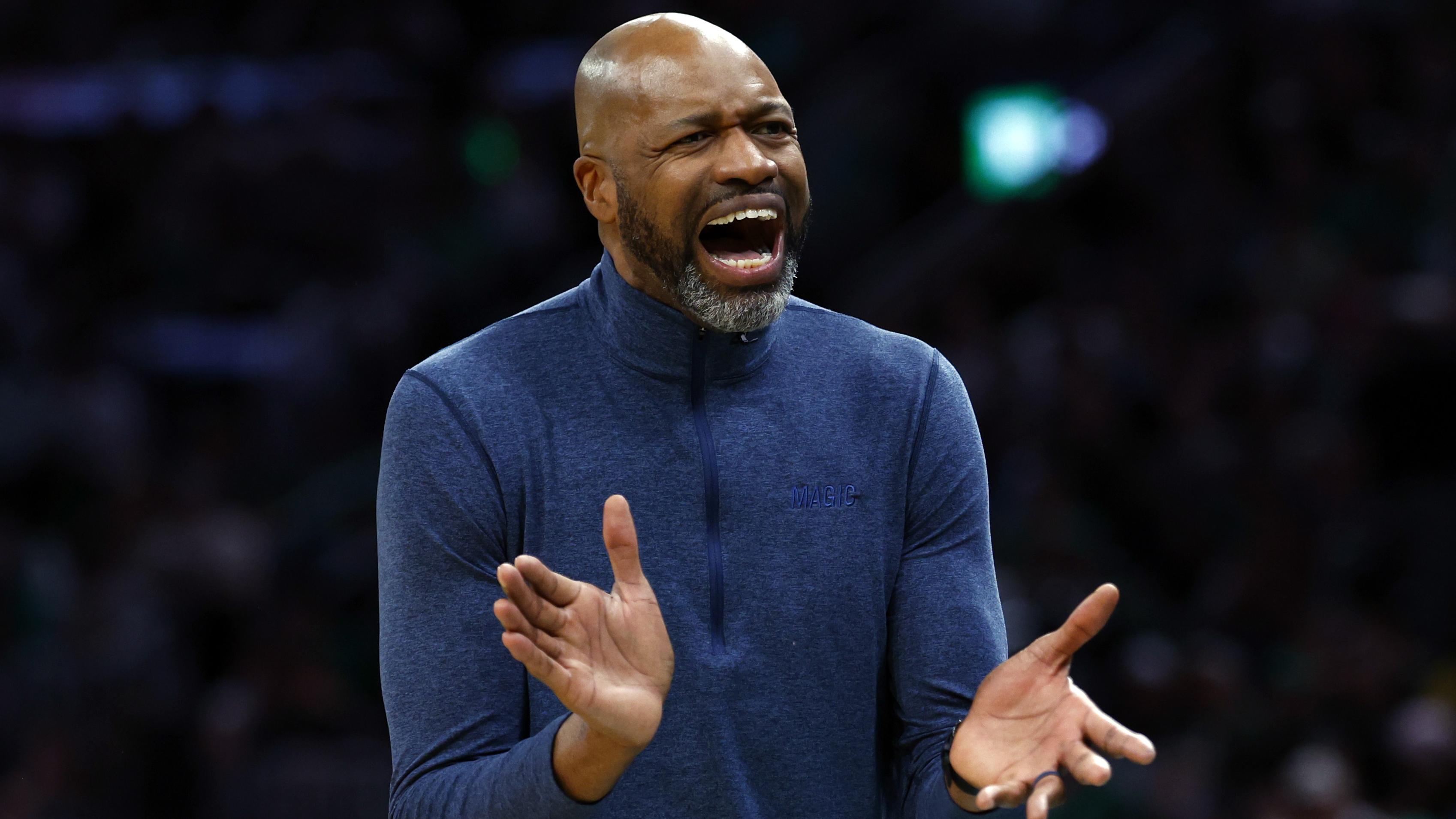
Regular season record: 114–184
Playoff record: 4–8
Experience: Four seasons
Finals appearances: None
Championships: None
Coach of the Year awards: None
Jamahl Mosley has turned Orlando into one of the NBA's stifling defensive monoliths, built on relentlessness and length.
He's molded rotations around positional interchangeability—switching, collapsing, and contesting every conceivable angle. Last season, the Magic ranked second in defensive rating (109.1 points per 100 possessions). With defenders like Jalen Suggs, Anthony Black, and Jonathan Isaac, Orlando weaponizes length to close gaps, contest shots, and force late-clock decisions.
Offense, however, remains the Achilles' heal.
The Magic finished 27th in offensive rating, struggling with spacing and inconsistent shooting—held back by stars Paolo Banchero and Franz Wagner hovering around 32% from three.
Mosley's minimalist, read-based approach can collapse under pressure with limited shooting, leading to empty possessions.
Adding Desmond Bane should help, but until Orlando's two stars improve their shooting, Mosley will need to depend on their suffocating defense to initiate the offense.
15. Quin Snyder, Atlanta Hawks
16 of 30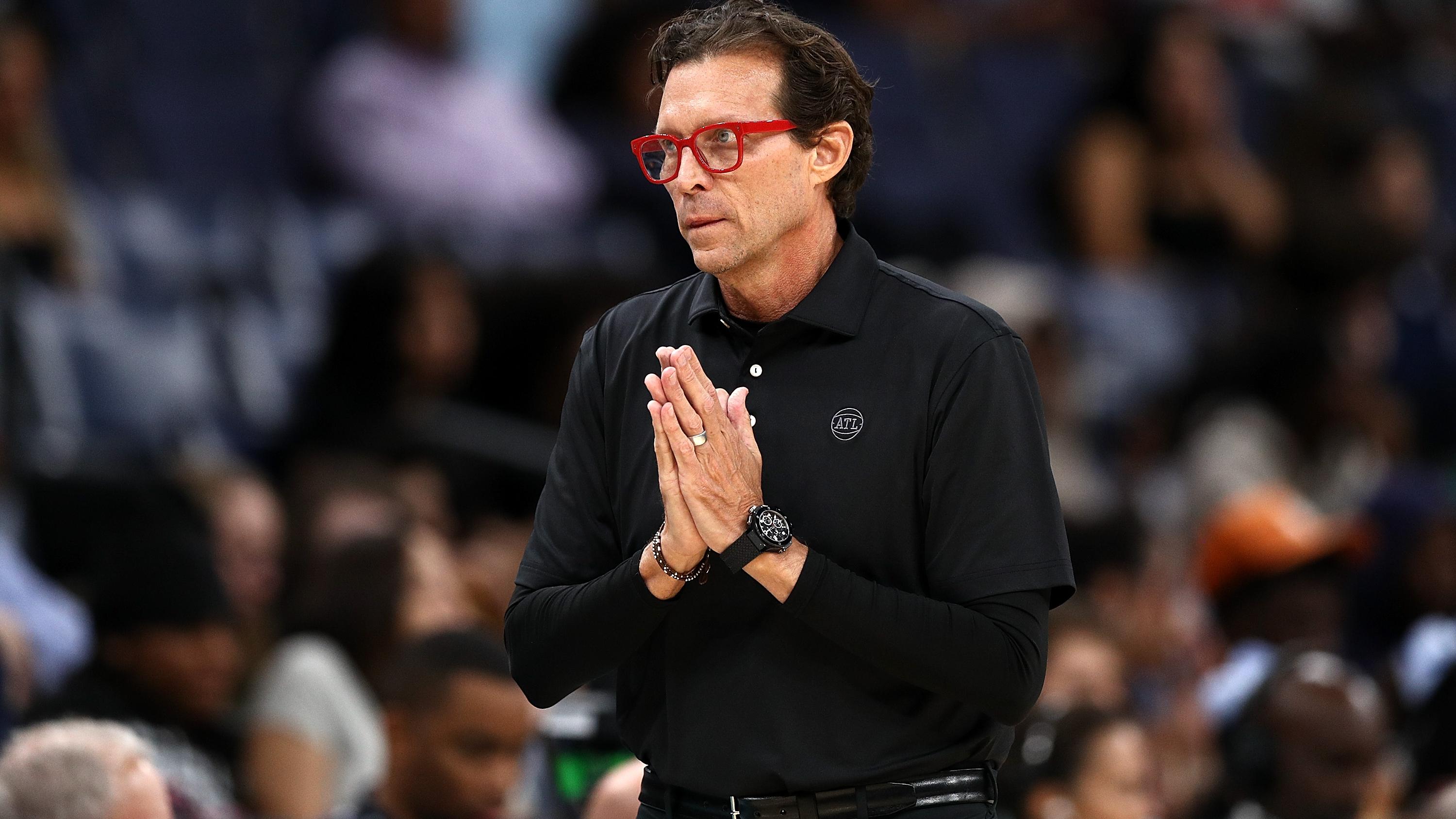
Regular season record: 458–363
Playoff record: 23–34
Experience: 11 seasons
Finals appearances: None
Championships: None
Coach of the Year awards: None
Back in his Utah days, Quin Snyder turned the Jazz into a clockwork of staggered screens and pick-and-rolls. That spacing forced defenders into full-court triage. The "three-point and easy two revolution" that defined his Utah tenure could bury you from deep or carve you apart with a backdoor cut. Snyder's playcalling evolved in real time, mirroring the logic of jazz itself.
In Atlanta, that same philosophy is still finding its tune.
Jalen Johnson's injury last season stalled some of the star tissue that made the offense soar. The Hawks' three-point mark of 35.8% underscores the inconsistency: the shots are there, but the rhythm isn't.
Trae Young's willingness to play off the ball and lean into Snyder's structure is encouraging, especially given his reputation as a difficult fit for strong-willed coaches.
Snyder's 47-57 record should be buoyed by some home-run off-season additions. Snyder sits right on the fault line above Mosley's potential this season but below Atkinson's polish.
14. Kenny Atkinson, Cleveland Cavaliers
17 of 30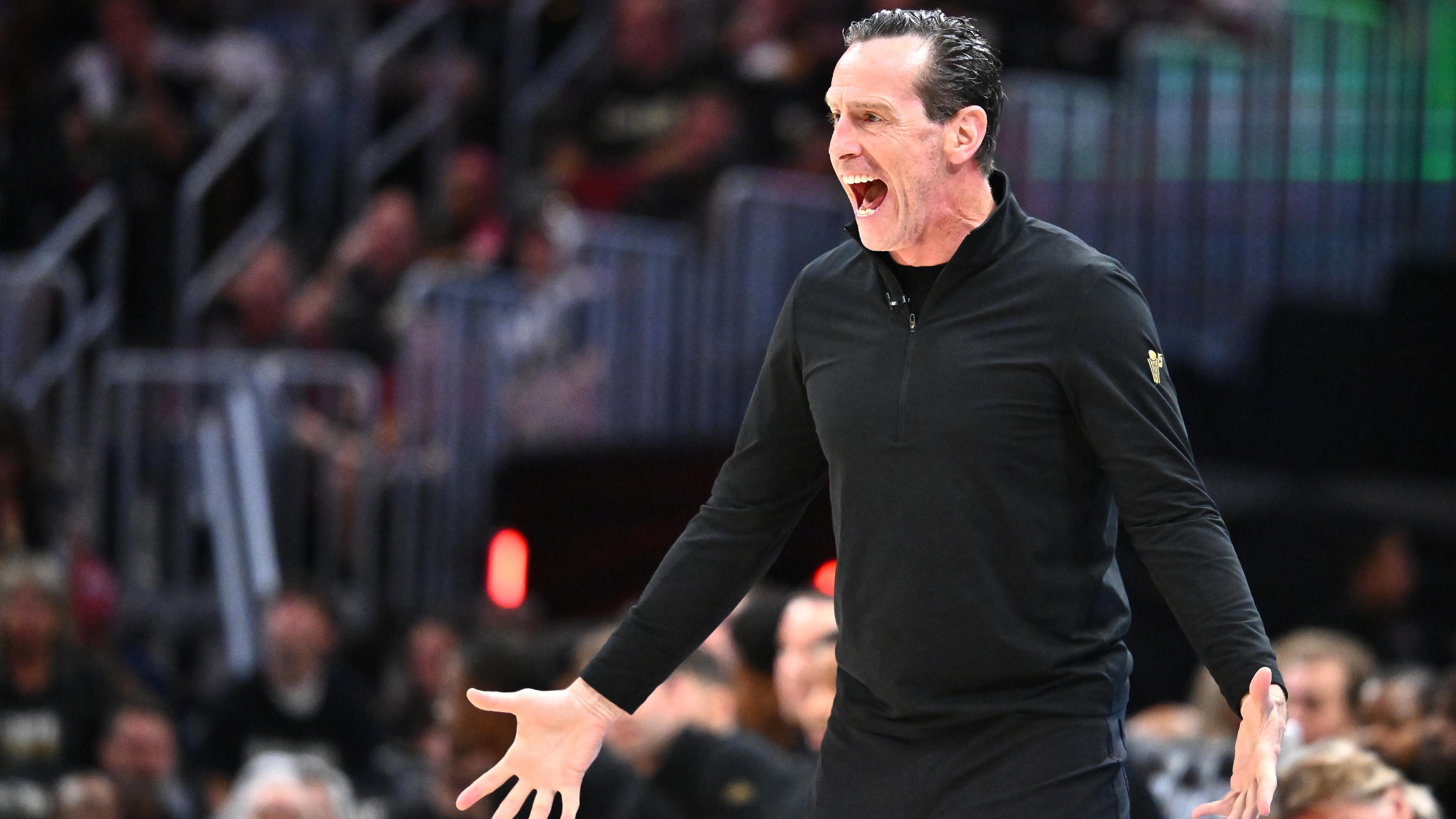
Regular season record: 182–208
Playoff record: 6–8
Experience: Five seasons
Finals appearances: None
Championships: None
Coach of the Year awards: One (2025)
In Brooklyn, Kenny Atkinson helped transform the likes of D'Angelo Russell, Jarrett Allen, Caris LeVert and Spencer Dinwiddie into contributors. Everyone ate in his democratic rotations, which gave 11–12 players significant minutes.
In Cleveland, Atkinson has pushed to elevate Evan Mobley as the offensive fulcrum. Mobley's three-point attempts have soared—he attempted 166 more threes in the last season compared to the prior year—with his accuracy remaining solid (37%), and his free-throw attempts increasing as well (4.3).
The Cavs' offensive rating under Atkinson jumped from 16th to first, with efficiency gains anchored by Mobley's expanded role and use of more off-ball screens. Still, the missing piece in his résumé remains one big playoff run.
Despite Atkinson mastering zone defense and cross-matching in transition, the Cavaliers fell short again in the second round, losing 4–1 to Indiana. With the East wide open, a deep run can't elude him any longer.
13. Doc Rivers, Milwaukee Bucks
18 of 30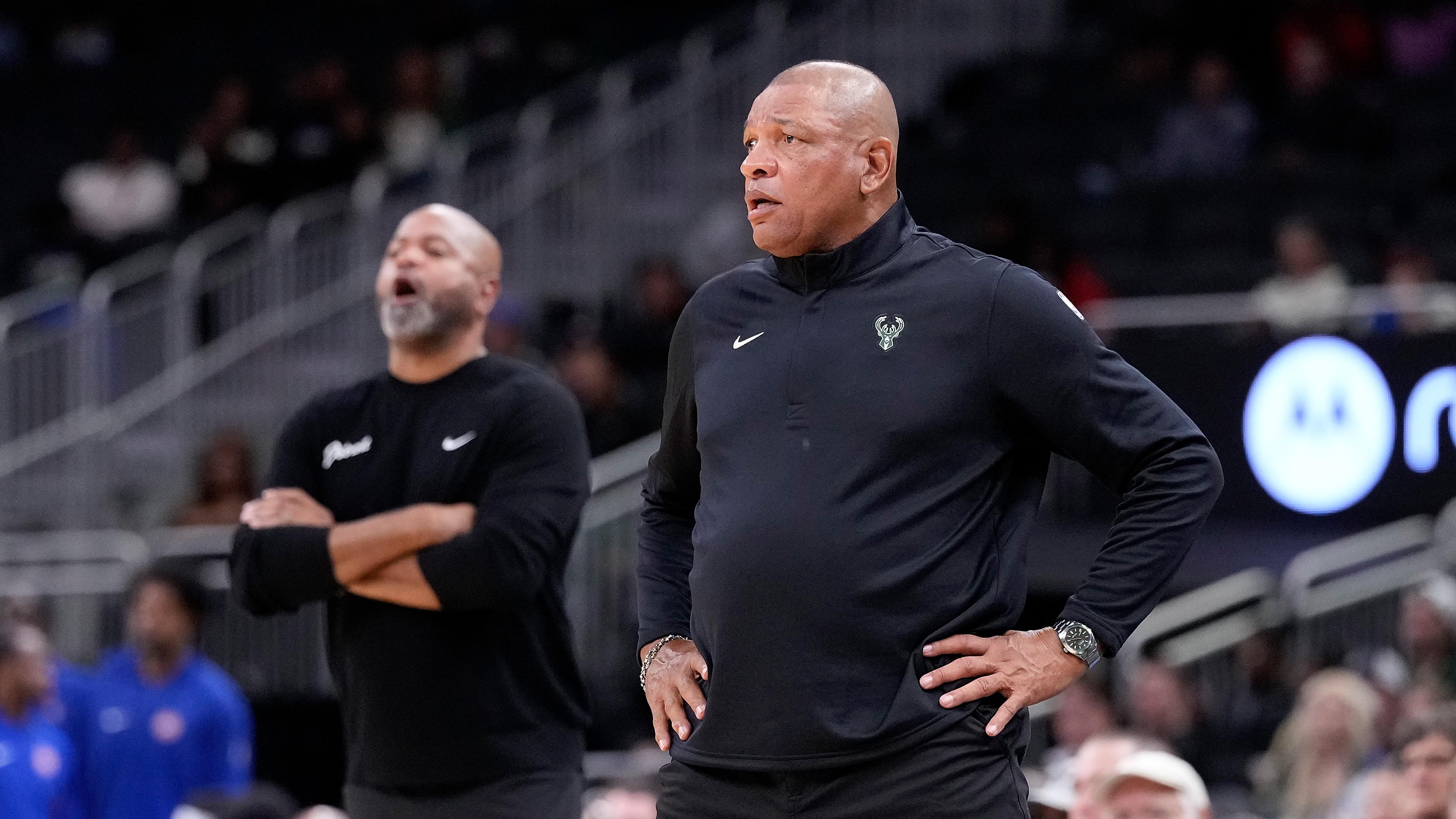
Regular season record: 1,162–816
Playoff record: 114–112
Experience: 26 seasons
Finals appearances: Two
Championships: One (2008)
Coach of the Year awards: One (2000)
Doc Rivers arrived in Milwaukee with championship pedigree, tasked with guiding Giannis Antetokounmpo and Damian Lillard through a volatile era. He retooled the Bucks' offense toward motion and spacing, blending elements of Lillard's Portland sets to lessen isolation plays.
The results were mixed—Milwaukee ranked 10th in offensive rating (115.1) in 2024–25, efficient but inconsistent. Despite injuries to Lillard, the trade of Khris Middleton, and integrating Kyle Kuzma, Rivers kept the Bucks competitive.
Yet his résumé still leans on the glow of his lone 2008 title in Boston. When's the encore?
His postseason legacy (beyond 2008) remains a mess: he's the only coach in NBA history to blow multiple 3–1 series leads, spanning Orlando and the Clippers. And his Bucks choked all season last year: the Bucks ranked 28th in offensive efficiency in clutch situations, a glaring weakness for such a talented roster.
Still, his stabilizing presence and knack for raising floor performance keep him just outside the league's top 10.
12. Jason Kidd, Dallas Mavericks
19 of 30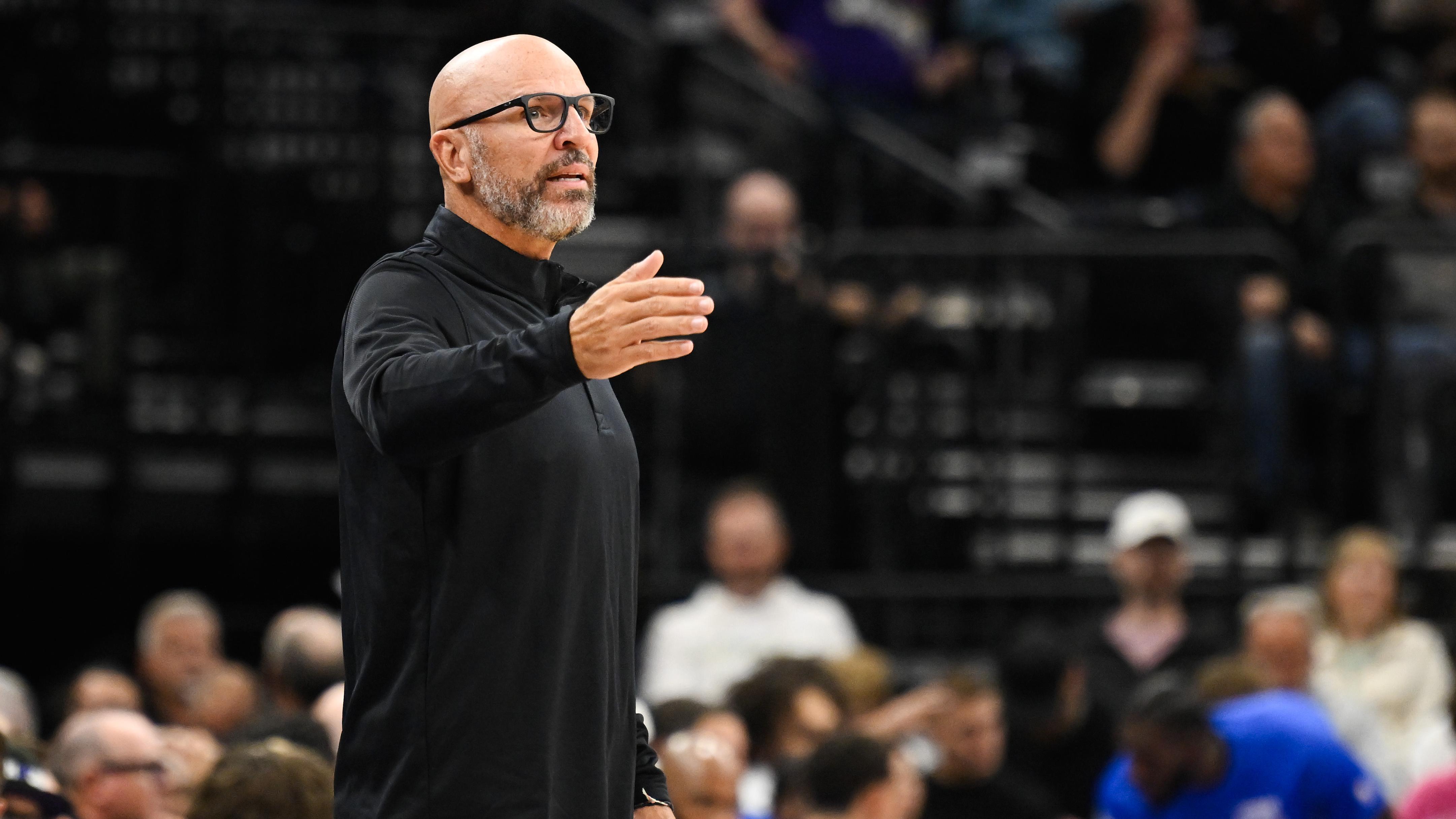
Regular season record: 362–339
Playoff record: 31–33
Experience: Nine seasons
Finals appearances: One
Championships: None
Coach of the Year awards: None
Once viewed as a developmental coach with awkward optics and shaky in-game decisions, Jason Kidd has evolved into a Finals-caliber leader capable of commanding superstar respect. In Dallas, Kidd helped restore Kyrie Irving's reputation, empowered Luka Dončić, and built one of the NBA's top defensive units: a complete image turnaround from his embarassing Brooklyn and Milwaukee tenures.
Offensively, he's shifted away from Milwaukee's rigid isolation to a read-based system in Dallas, emphasizing quick triggers. With veteran minds like Frank Vogel and Phil Handy on staff, Kidd's willingness to adapt now defines him as much as his basketball IQ once did.
He outranks Rivers because his Finals run is more recent. Still, familiar flaws linger: late-game indecision, sluggish timeouts, and that stoic, hands-in-pockets demeanor when momentum turns against him. He's proven he can guide stars and reach the Finals. With Dončić out and Cooper Flagg in, he must show he can close the deal.
11. Nick Nurse, Philadelphia 76ers
20 of 30
Regular season record: 298–256
Playoff record: 27–20
Experience: Seven seasons
Finals appearances: One
Championships: One (2019)
Coach of the Year awards: One (2020)
Paired with Kawhi Leonard, Nick Nurse immortalized his name, winning a 'chip on an inventive, unpredictable offense.
Since then, results have been uneven. After being fired by Toronto in 2023, Nurse has struggled to find consistency in Philadelphia. Joel Embiid's extended injury absence make Nurse's flaws easier to see.
Critics point to his notoriously tight rotations and reluctance to trust the bench. While still in Toronto, bench players like Chris Boucher voiced frustration over limited opportunities, as the Raptors routinely ranked near the bottom in bench minutes.
In Philadelphia, similar habits persist, with Nurse leaning heavily on veterans such as Kyle Lowry and Eric Gordon last season, both clearly washed. His rigid minute management and mid-game tinkering sometimes undercut his teams' rhythm.
There's no doubt Nurse is an elite tactician, capable of drawing up elite counters and creative sets. He's brilliant but stuck in his ways. That's why he sits outside the NBA's top tier.
10. Chris Finch, Minnesota Timberwolves
21 of 30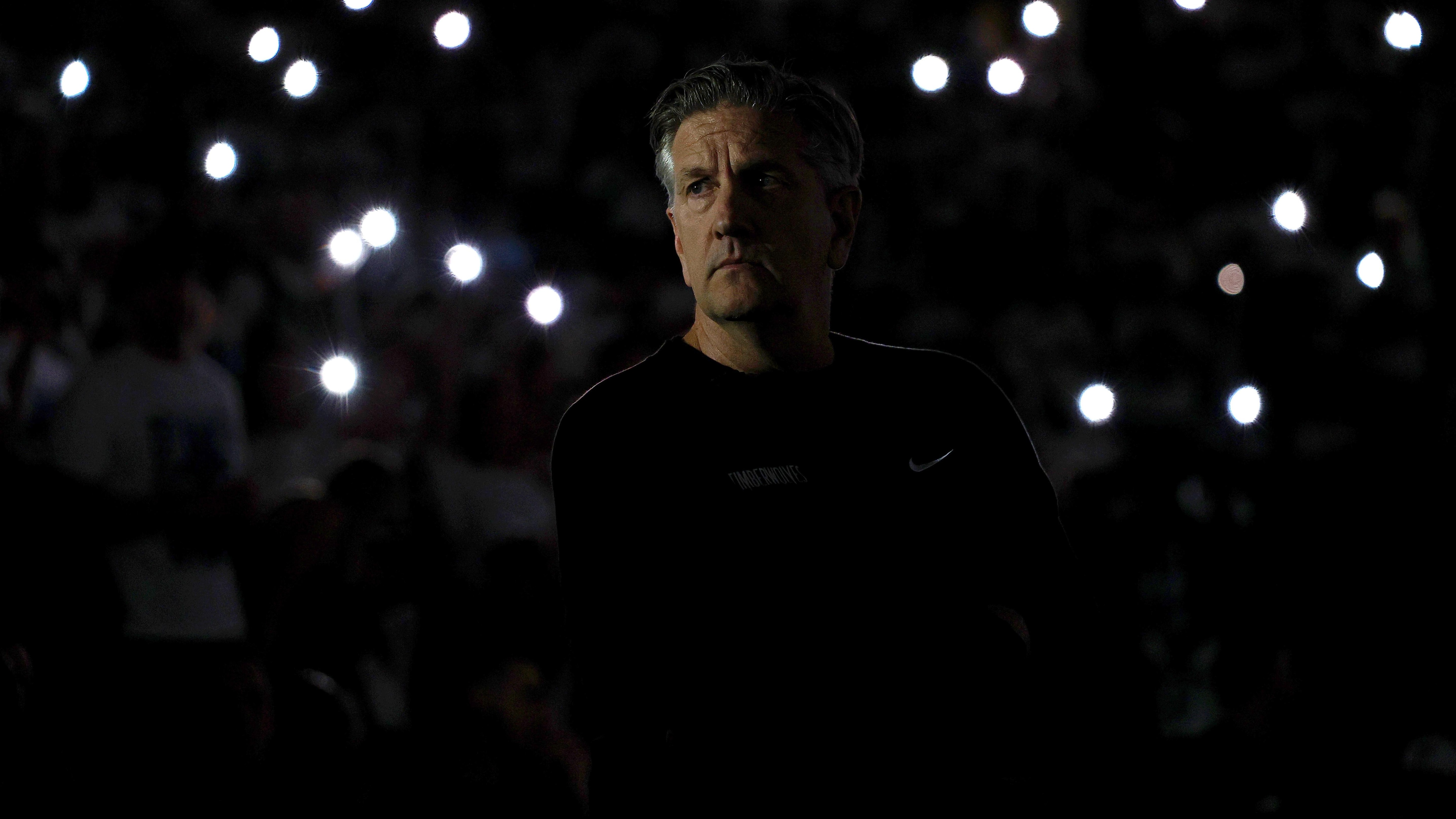
Regular season record: 209–160
Playoff record: 21-21
Experience: Five seasons
Finals appearances: One
Championships: None
Coach of the Year awards: None
Anthony Edwards comes off a high pick-and-roll, shoulder down, reading two defenders as Julius Randle pops to the wing and Rudy Gobert dives—everybody moving, no one standing still. That sequence captures Chris Finch's offense in miniature: structure, freedom, geometry, instinct. With Edwards as the point-of-attack, quick handoffs, and drive-and-kick actions keep defenses chasing stops.
Finch's adaptability has been his superpower, seamlessly blending different skill sets through trades like Karl-Anthony Towns' shooting, Gobert's lob threats, even Randle's bruising isolation game, without breaking rhythm. Under his direction, the Timberwolves have reached back-to-back Western Conference Finals (with two different second options), powered by a malleable offense. His read-and-react style can wobble against elite defenses, as it did against the Thunder last playoffs. But Finch has turned Minnesota into a contender and his offense into one of the NBA's most fluid symphonies.
9. J.B. Bickerstaff, Detroit Pistons
22 of 30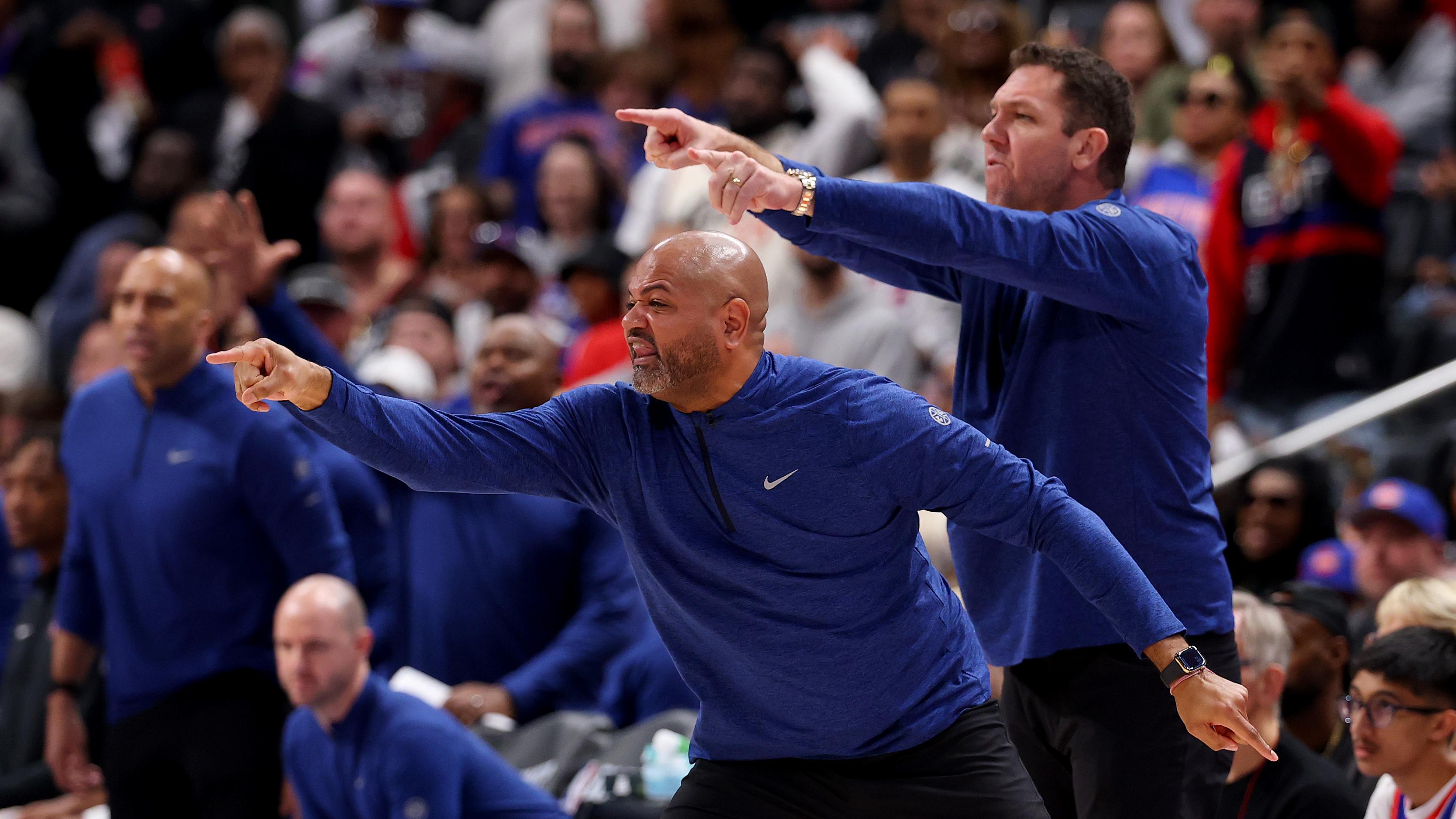
Regular season record: 299–328
Playoff record: 9–19
Experience: Nine seasons
Finals appearances: None
Championships: None
Coach of the Year awards: None
Last season, in the chill of Detroit, J.B. Bickerstaff engineered one of the most dramatic turnarounds in recent NBA memory, winning 30 more games (44) than they did in the previous season (14). Good for the sixth-best single-season improvement in NBA history. In Detroit's first-round matchup with the Knicks, the Pistons proved they weren't just an on-paper turnaround. They forced the series to six games, nearly overthrowing New York in contested finishes. Game 2's 100-94 win was a model of discipline under pressure, with Bickerstaff's mid-game adjustments putting Ausur Thompson on Jalen Brunson and Jalen Duren on Josh Hart almost caused an upset.
Under his watch, Cade Cunningham blossomed into the best point guard in the Eastern Conference, mastering the art of the pick-and-roll. Bickerstaff empowered him to use his strong power dribble and stop-on-a-dime pull-up game, weaponizing his size and pace control. Detroit's roster remains star-light, still searching for a true second and third scorer. That they competed to the final whistle in nearly every postseason game is a testament to Bickerstaff's structural smarts.
8. Mike Brown, New York Knicks
23 of 30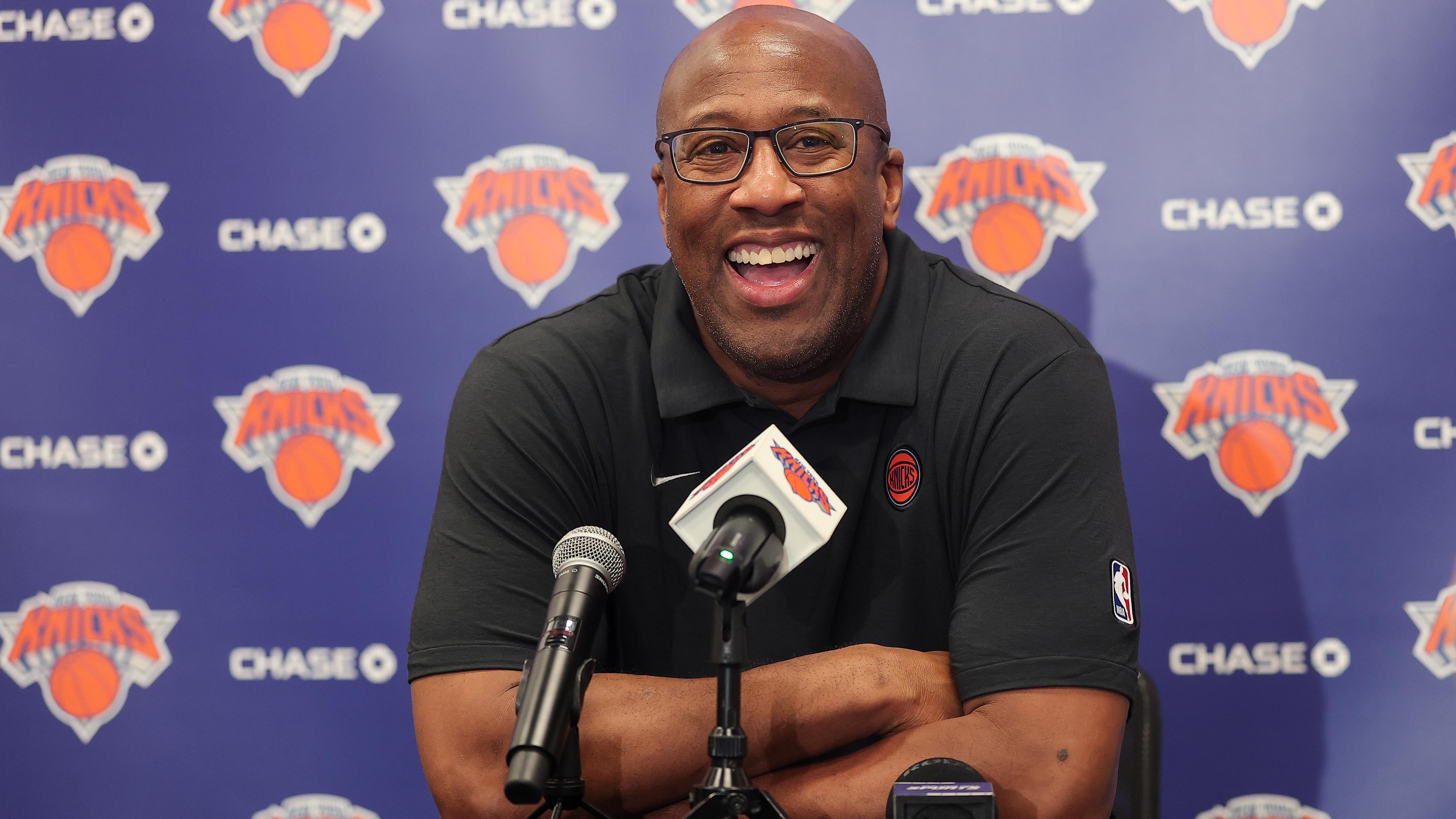
Regular season record: 454–304
Playoff record: 50–40
Experience: 11 seasons
Finals appearances: One
Championships: None
Coach of the Year awards: Two (2009, 2023)
That old New York pulse is back. The Garden rafters rattle again and every game feels like theater. As the new director, Mike Brown looks to enhance the Eastern Conference Finals finalists into a more fluid, modern offense in New York. He can do this by tweaking the schema that vaulted the Sacramento Kings into the league's top offense.
Look for Brown to repurpose Karl-Anthony Towns as a Damantas Sabonis-style DHO hub, convince Jalen Brunson into a bigger off-ball role, and unleash Mikal Bridges on-ball. In media sessions, Brown explicitly spoke of "spraying 40 threes" and "getting Brunson easier shots," signaling a shift away from the hero ball that's led the Brunson-era.
Brown's also talked about moving Towns around—to the elbow, corner, wing and letting him initiate decisions when up top. Brown's pedigree of malleability shouldn't be understated: he's learned from Bernie Bickerstaff, Gregg Popovich, Steve Kerr and carries their DNA of plasticity. Still, he's one tier shy of the coaches who've hoisted trophies. Let Brown win it all for the Knicks and he's top three on this list.
7. Ime Udoka, Houston Rockets
24 of 30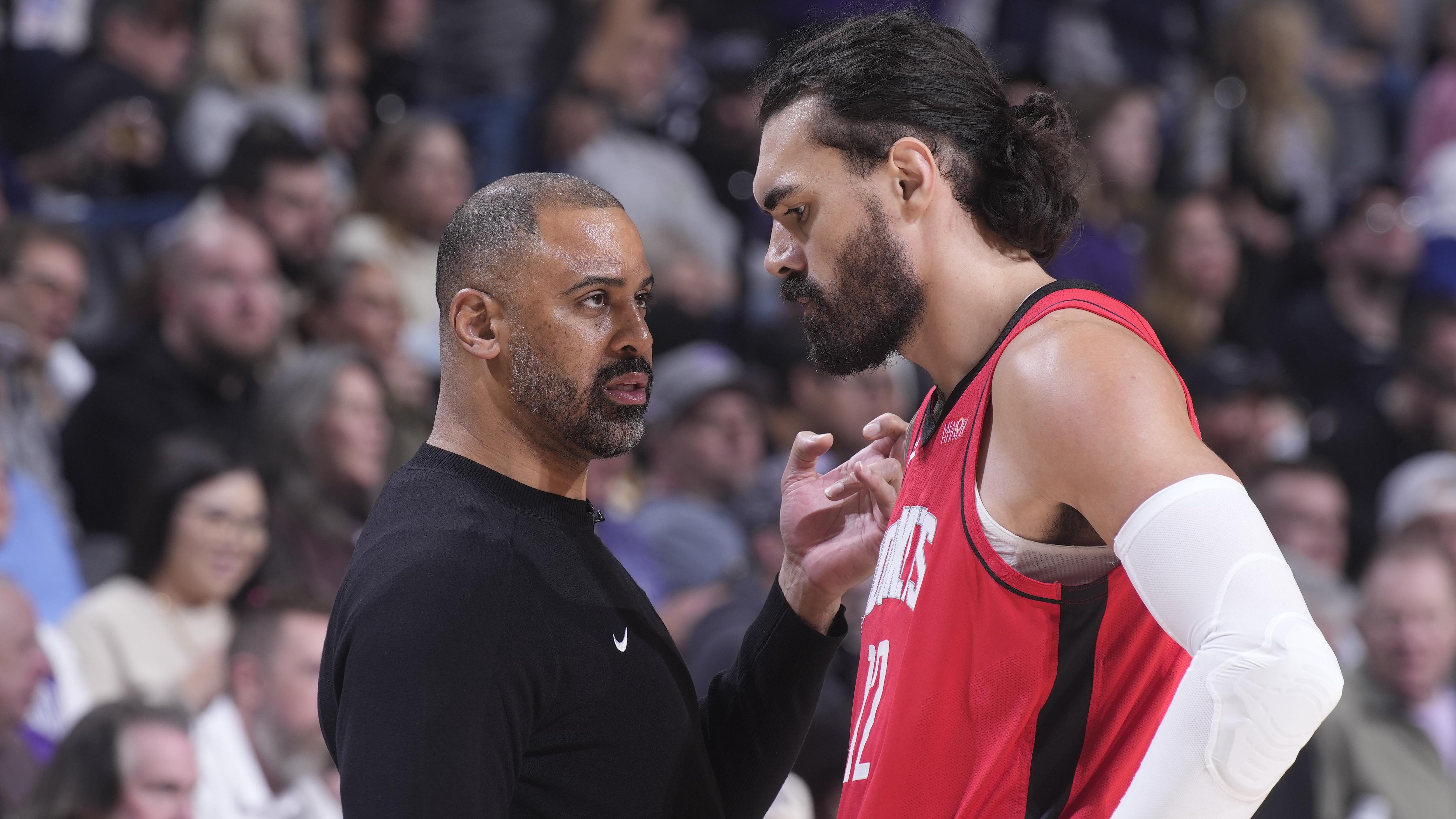
Regular season record: 144–102
Playoff record: 17–14
Experience: Three seasons
Finals appearances: One
Championships: None
Coach of the Year awards: None
Ime Udoka had the Rockets arena sounding like that 2001 Nike commercial the way those sneakers were streaking across the floor on defense. His defensive philosophy, honed in Boston and weaponized in Houston, is as ruthless as it gets. His Celtics took out your heart on switch-heavy discipline and elite rim protection.
He's molded a young Rockets roster into a top-five defensive unit that allowed the sixth-fewest points per 100 possessions last season, their defense anchored by the demon Amen Thompson and a refined Alperen Şengün. Rather than forcing Şengün into traditional rim-protector duties, Udoka tailored drop and hybrid coverages to his instincts. When he's feeling freaky, Udoka mixes man, zone, and drop in a single possession—keeping offenses unsettled.
Fiery and confrontational, Udoka demands edge, and his results are undeniable. He's turned Houston into a defensive juggernaut and a culture of accountability that was in the toilet after Stephen Silas.
6. Mark Daigneault, Oklahoma City Thunder
25 of 30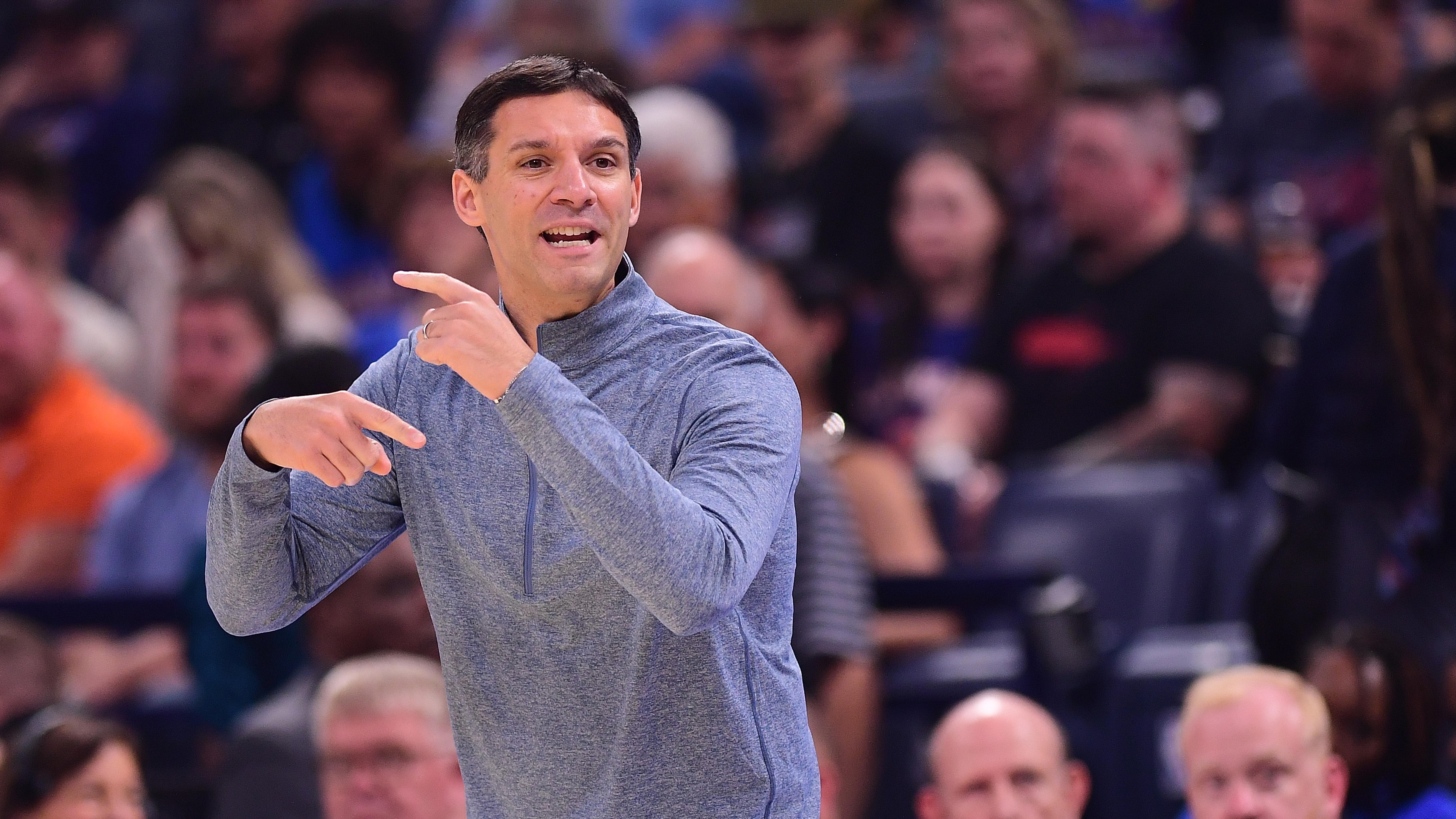
Regular season record: 211–189
Playoff record: 22–11
Experience: Five seasons
Finals appearances: One
Championships: One (2025)
Coach of the Year awards: One (2024)
It's revenge of the nerds in Oklahoma City. Mark Daigneault did it. The Thunder finally reached the mountaintop, winning the 2025 NBA title. His five-out offense where every player can handle, attack closeouts, or initiate has become the model for modern basketball. No team in recent memory has embodied such offensive egalitarianism.
Daigneault has mastered ATO (after-timeout) execution. He's one of the league's best playcallers, routinely creating high-efficiency looks through deceptive inbound sets and misdirection actions. Opponents know it and still can't do anything but watch in disbelief. Daigneault will use Shai Gilgeous-Alexander as a decoy to spring Aaron Wiggins or Isaiah Joe for clutch shots. Pick your poison.
Champion at 40, genius by consensus. The Thunder play with his personality: impossible to rattle. He enters the new season favored to repeat. Welcome to the vanguard of basketball intelligentsia.
5. Joe Mazzulla, Boston Celtics
26 of 30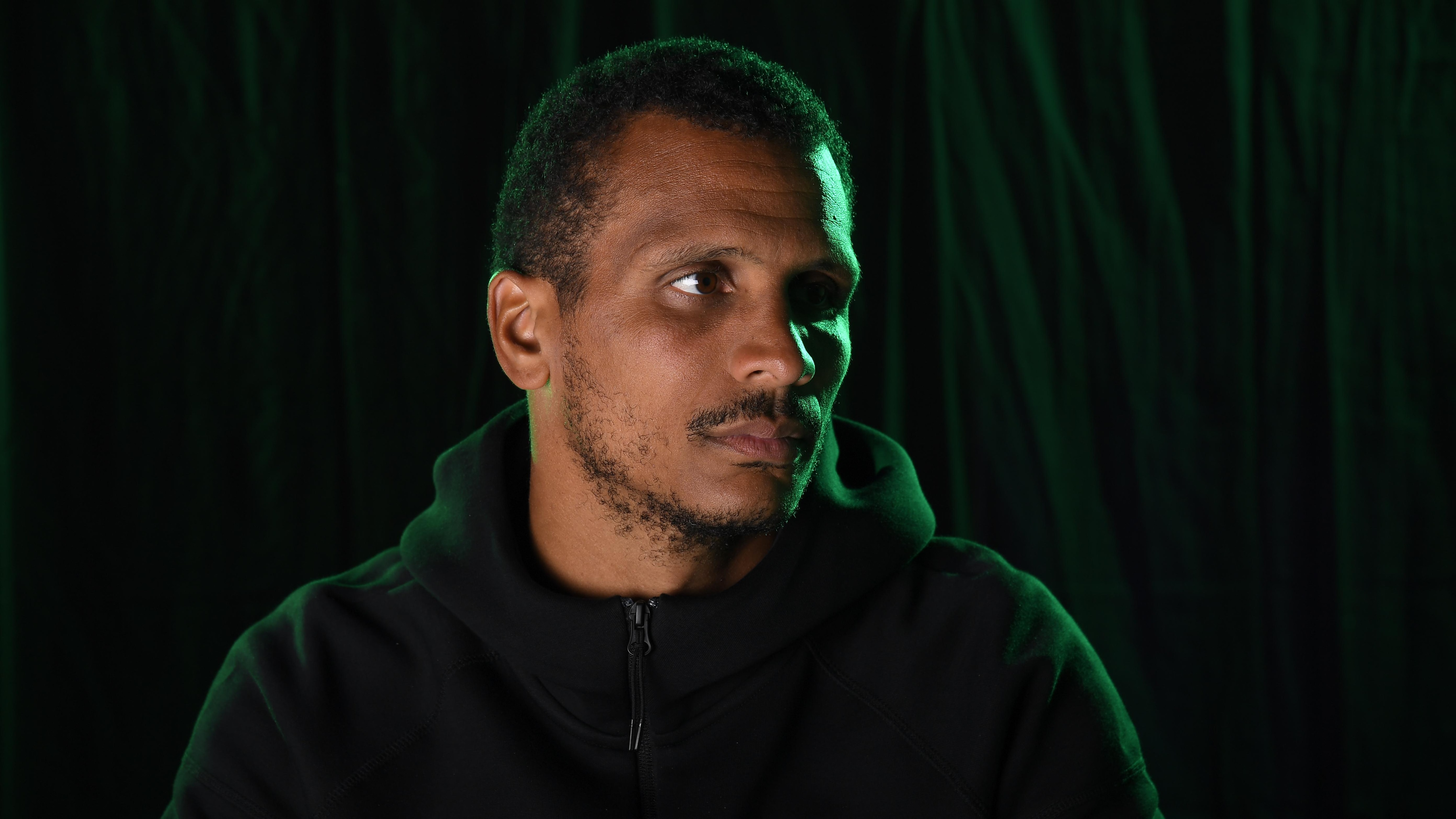
Regular season record: 182–64
Playoff record: 33–17
Experience: Three seasons
Finals appearances: One
Championships: One (2024)
Coach of the Year awards: None
"I'm only familiar with one royal family—Jesus, Mary, and Joseph." Joe Mazzulla's line reveals everything about his mindset as ministry. A devout Catholic, that conviction feeds his sideline intensity. The media called him a "sicko" for how unflinching he stayed during the Mavericks 22–2 run in Game 3 of the 2024 Finals. He coached that series to perfection.
Tactically, Mazzulla has reshaped Boston's offense into one of the league's most adaptive systems. He prepares "championship stations" by teaching fight mentality through UFC clips. He's brought back Celtics ring culture where belief and execution are indistinguishable. Now comes his biggest test: a retooled roster, no Jayson Tatum after an ACL tear, and no true point guard. If Mazzulla sustains Boston's edge with this roster, his legend grows.
4. Tyronn Lue, LA Clippers
27 of 30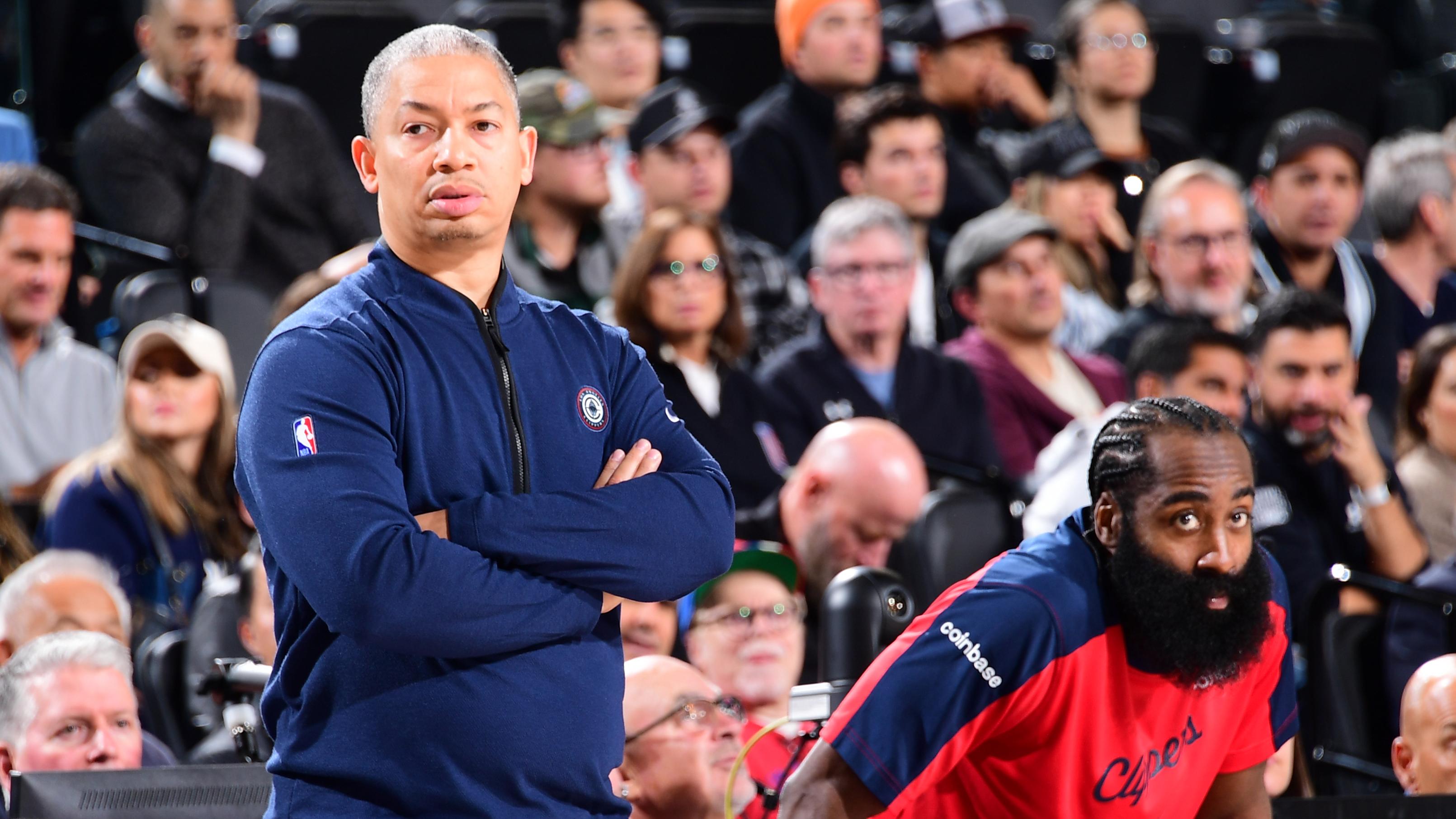
Regular season record: 362–249
Playoff record: 57–41
Experience: Nine seasons
Finals appearances: Three
Championships: One (2016)
Coach of the Year awards: None
Down 3–1 in the 2016 NBA Finals, the Warriors seemed unstoppable—until Tyronn Lue flipped the script to tie the series. In Game 7, midway through the second quarter, he called timeout and looked LeBron James dead in the eyes: "Bron, you've got to be better than this. Stop being so passive. Stop turning the ball over!" That moment lit a competitive fire. Lue's adjustment wasn't just verbal. He reallocated LeBron to a small-ball playmaker, forced Steph Curry into switching on bigs, slowing Golden State's momentum.
Fast-forward to L.A., where despite injuries and roster churn, he's maintained consistent success. Under Lue, Ivica Zubac has quietly blossomed into one of the league's most efficient big men, giving Lue a dependable center to anchor both sides of the court With Lue, no adjustment's too late. Flipping matchups mid-series or scripting new rotations on the fly, Lue's teams bend, but never break. He sits above Mazzulla for his playoff improvisation and below Carlisle for sheer longevity.
3. Rick Carlisle, Indiana Pacers
28 of 30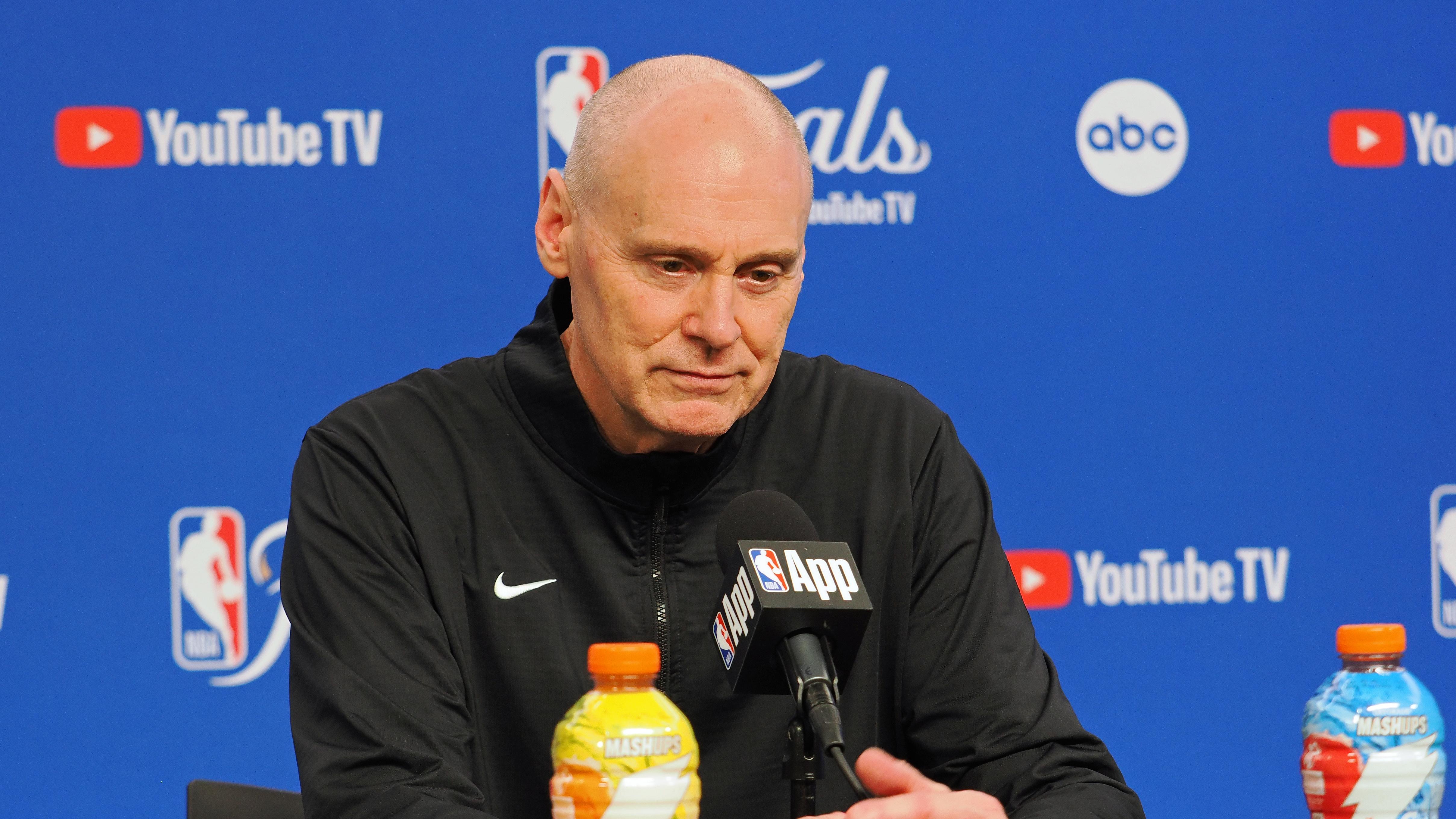
Regular season record: 993–860
Playoff record: 86–87
Experience: 23 seasons
Finals appearances: Two
Championships: One (2011)
Coach of the Year awards: One (2002)
Rick Carlisle's legend began in the trenches. After the Malice at the Palace, he stormed into the Pacers' locker room, furious—he'd been hit during the melee—and unloaded on his players. That night forged Carlisle's edge. No one questions the fire in his belly.
A decade later, that same intensity powered one of the NBA's most majestic title runs. The 2011 Mavericks couldn't beat Miami in a horserace. So they outthought them. Carlisle's inverted pick-and-rolls and off-ball misdirections made Dirk Nowitzki's gravity inevitable. It was the greatest ring run this century.
Now back in Indiana, he's easing up as a curmudgeon, letting his young ballers set the pace. Around Tyrese Haliburton and Pascal Siakam, he has two soldiers he can go to war with. Once Hali gets back from a devastating injury, you can bet Carlisle stays one adjustment ahead.
2. Erik Spoelstra, Miami Heat
29 of 30
Regular season record: 787–572
Playoff record: 110–83
Experience: 17 seasons
Finals appearances: Six
Championships: Two (2012, 2013)
Coach of the Year awards: None
Zone defense isn't supposed to work in the modern NBA. Too much shooting. Too many nerds with advanced analytics. But Erik Spoelstra makes it work—better than anyone. What started as a counter has become Spo's plug-and-play defensive identity.
Known as one of the best playcallers, his after-timeout packages are relentlessly efficient (notoriously elite in points per 100), with layers of counters that flow from Bam dribble-handoffs to ghost screens to Spain re-stacks.
That adaptability defines him. He managed the Heatles ego, balancing LeBron James, Dwyane Wade, and Chris Bosh's personalities while delivering two titles and four straight Finals. A decade later, he was back in the mud, this time with Jimmy Butler, dragging underdogs to the Finals. Twice. From Max Strus to Haywood Highsmith to Duncan Robinson, he's made so many bums battle-tested. For over 25 years with the Heat, his teams mirror his moxie. No matter the roster, he extracts every win possible.
1. Steve Kerr, Golden State Warriors
30 of 30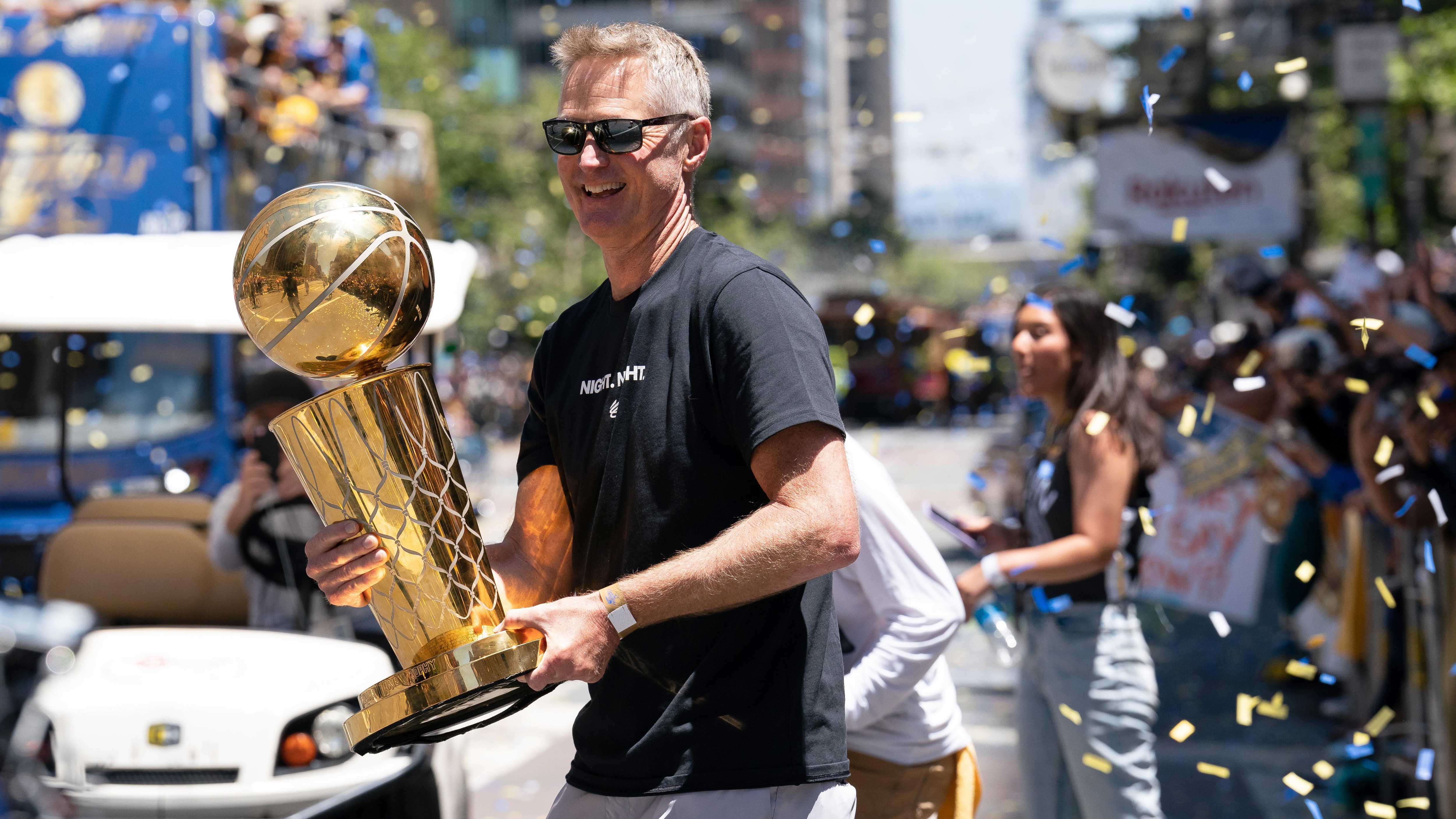
Regular season record: 567–308
Playoff record: 104–48
Experience: 11 seasons
Finals appearances: Six
Championships: Four (2015, 2017, 2018, 2022)
Coach of the Year awards: One (2016)
Steve Kerr has built one of the most influential systems basketball has ever seen. His Warriors redefined offense: five-out spacing, constant motion, layered reads, and the freedom for stars to improvise inside structure. He unlocked Steph Curry, Klay Thompson and Draymond Green into Hall-of-Famers, some of the greatest ever in their roles.
Four championships later, Kerr has looked everyone—from all-time greats to role players—square in the eye and told them "be ready."
